The best action camera: we've tested the top models by GoPro, Insta360, DJI and more
The best action cameras for recording your escapades
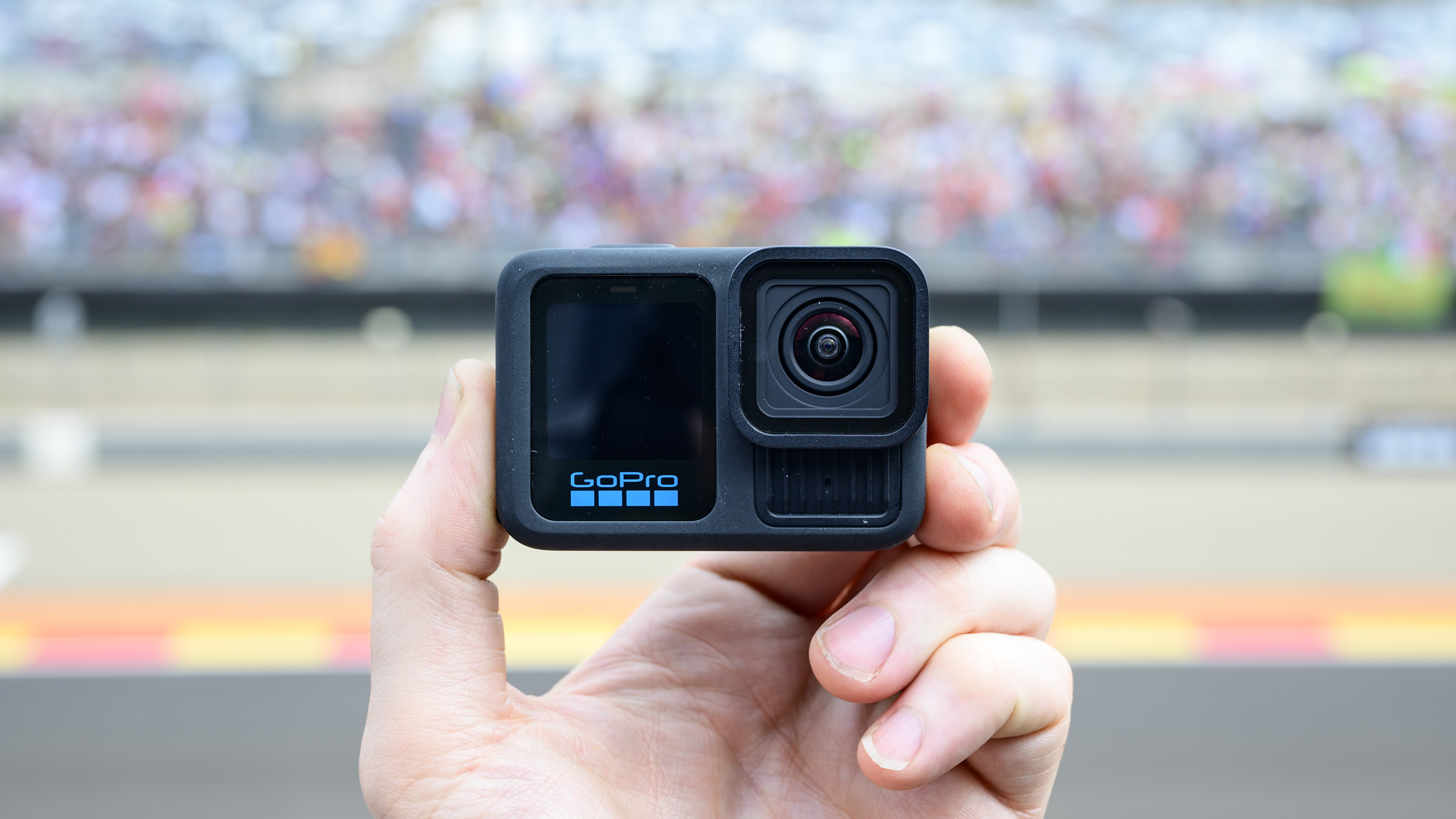
Sign up for breaking news, reviews, opinion, top tech deals, and more.
You are now subscribed
Your newsletter sign-up was successful
I've tested all of the best action cameras from GoPro, DJI and Insta360 over the last three years, plus other major releases, and collectively me and my team have put more than 50 action cameras over the past decade through their paces. Our in-depth experience with the earliest GoPro models through to the latest 8K cameras means we know exactly makes a great action camera for capturing your pursuits with sharp, stabilized footage in all conditions.
Based on our comprehensive reviews, GoPro still sets the bar in 2025. In my write-up of the Hero 13 Black, I praised its versatile mounting options, which includes support for Lens Mods and ND filters, and I came away impressed with the quality of its 5.3K video. That said, it’s got fierce competition: the Insta360 Ace Pro 2 can shoot in 8K, while the DJI Osmo Action 5 is my top pick for underwater video.
In the guide below, I’ve selected the best action cameras for different types of user, from adventurers to content creators and those on a shoestring. Each option has been tested extensively in real-world conditions and labeled with its key strengths, to help you quickly find the right action camera for your next challenge.

I'm TechRadar's Cameras Editor with over 15 years of experience in the photo video industry. I've tested many of the best action cameras over the last 10 years, including GoPro flagships and the best alternatives from the likes of Insta360. My product testing is done where it matters – out in the real world! In my opinion GoPro remains the brand to beat, but Insta360 and DJI take a different approach and are offering serious competition, while Akaso is a decent budget pick.
Why you can trust my judgement
Every action camera recommend in this guide has been thoroughly tested by me or one of our expert reviewers. TechRadar’s specialist team has reviewed more than 50 action cameras since the category first emerged and we continue to test new models as they launch – years back GoPro had the monopoly, but now there are at least four players in this space, so it's an active market.
☑️ 100s of cameras reviewed
☑️ 15 years of product testing
☑️ Over 16,000 products reviewed in total
☑️ Nearly 200,000 hours testing tech
Our reviews focus on real-world performance. We take action cameras into challenging environments to assess how they hold up in practise, not just on paper – from outdoor pursuits to swimming and more. We focus on several factors: as well as outright video quality, we look at image stabilization, slow-mo frame rates and dedicated modes such as timelapse. We also consider durability, mounting options, battery life and usability in fast-paced scenarios.
⭣ Read more
When it comes to footage, we record in a variety of resolutions and frame-rates to help gauge each action camera's strengths, and review these clips on a calibrated monitor. We look at default color reproduction and noise levels in shadows and highlights, and look out for any common image quality issues including clipping, softness, barrel distortion and over-zealous processing, as well as the effectiveness of the camera's image stabilization.
For battery life tests, we continuously record at different resolutions and frame-rates. We note down both how long the action cams lasts and when it has to shut down due to overheating. Lastly, we evaluate how user-friendly each camera is, by testing both their touchscreen interfaces and companion apps.
We also compare each action camera against its closest competitors to make a complete assessment. Whether you need an action camera for social content or videography, our recommendations are based on genuine field experience – so you can be confident that every action camera has earned its place.
Meet the team
My team of reviewers has amassed many years of experience testing all of the latest and greatest cameras of the last 20 years. That includes every action camera of note, from the very first GoPro to the latest 360-degree models.

Sam has been writing about tech and digital culture for over 20 years, starting off in video games journalism before branching out into the wonderful worlds of consumer electronics, streaming entertainment and photography. Over the years he has written for Wired, Stuff, GQ, T3, Trusted Reviews and PC Zone, and now lives on the Kent coast in the UK – the ideal place for a camera reviewer to ply their trade.

Mark is TechRadar's Senior news editor and has been a technology journalist since 2004. Formerly Trusted Reviews and TechRadar's cameras editor, Mark has tested cameras over many years from all of the leading brands.

James Abbott is a professional photographer and freelance photography journalist. He contributes articles about photography, cameras and drones to a wide range of magazines and websites where he applies a wealth of experience to testing the latest photographic tech.

Paul is a digital expert. In the 20 years since he graduated with a first-class honours degree in Computer Science, Paul has been actively involved in a variety of different tech and creative industries that make him the go-to guy for reviews, opinion pieces, and featured articles. You'll also find his writing in other places, including Creative Bloq, Digital Camera World, and 3D World Magazine.
Today's best action cameras
Why you can trust TechRadar
Below you'll find full write-ups for each of the best action cameras in my list. Each one has been extensively, so you can be sure that my recommendations can be trusted.
The best action camera overall
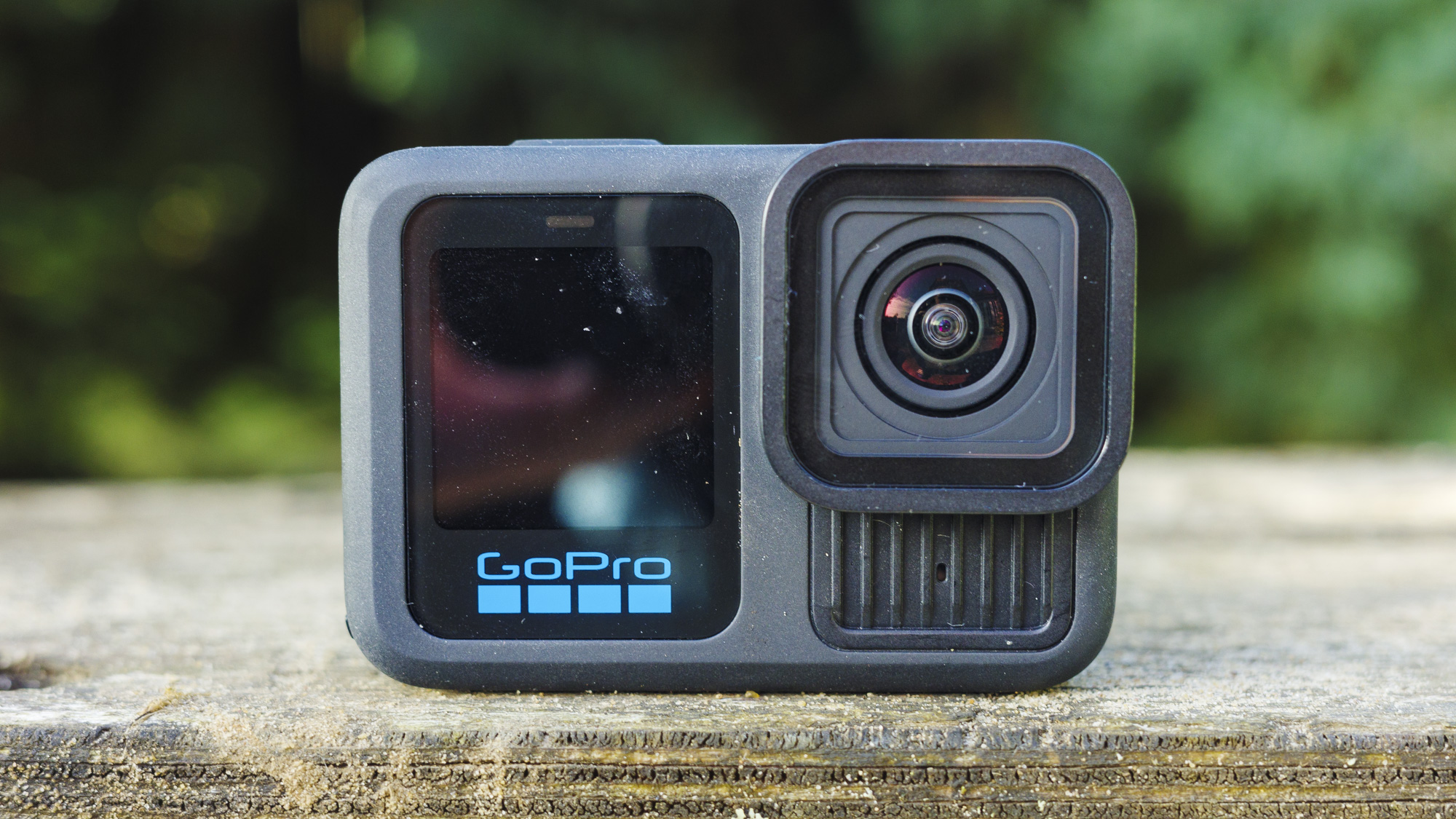
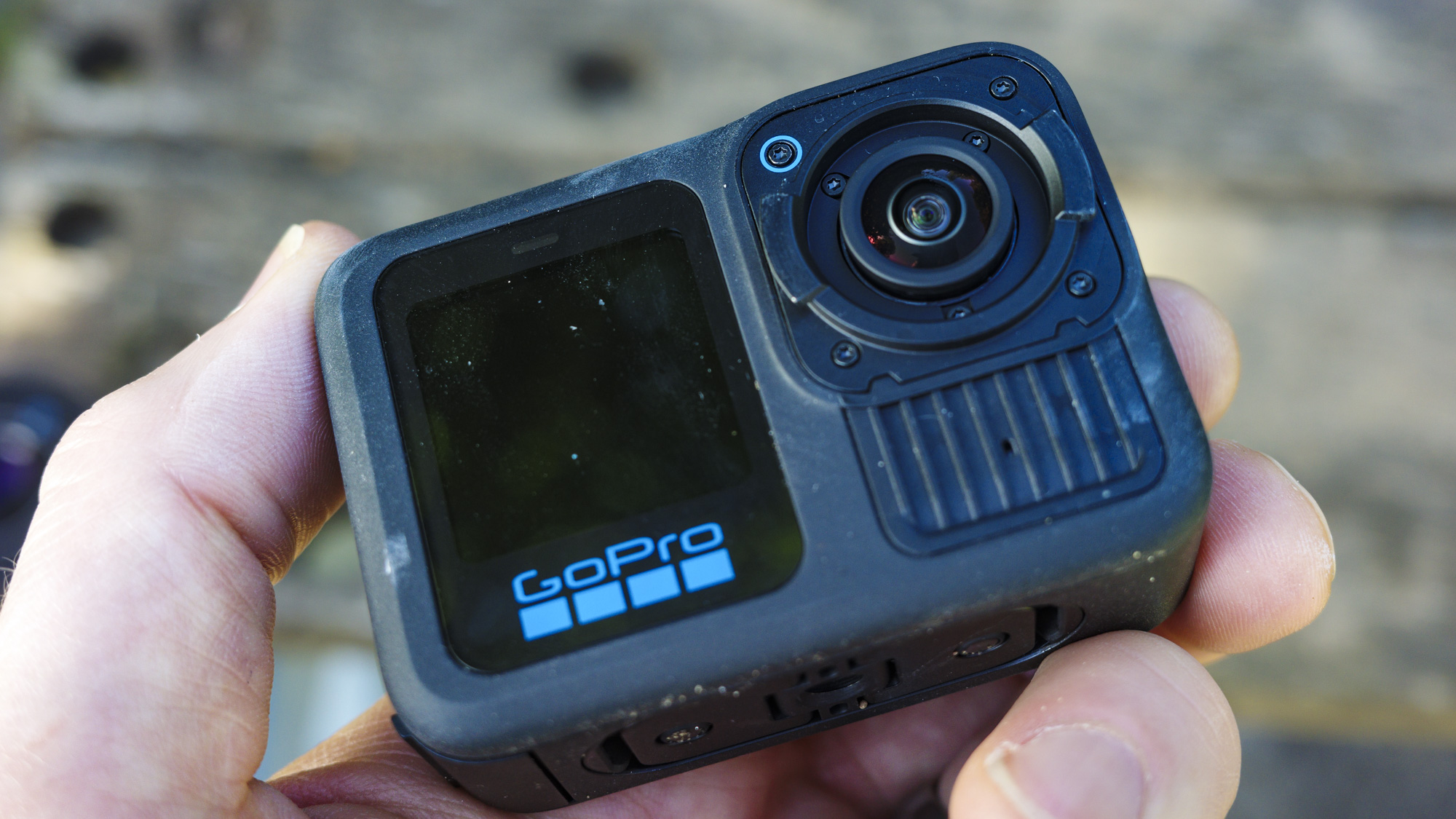
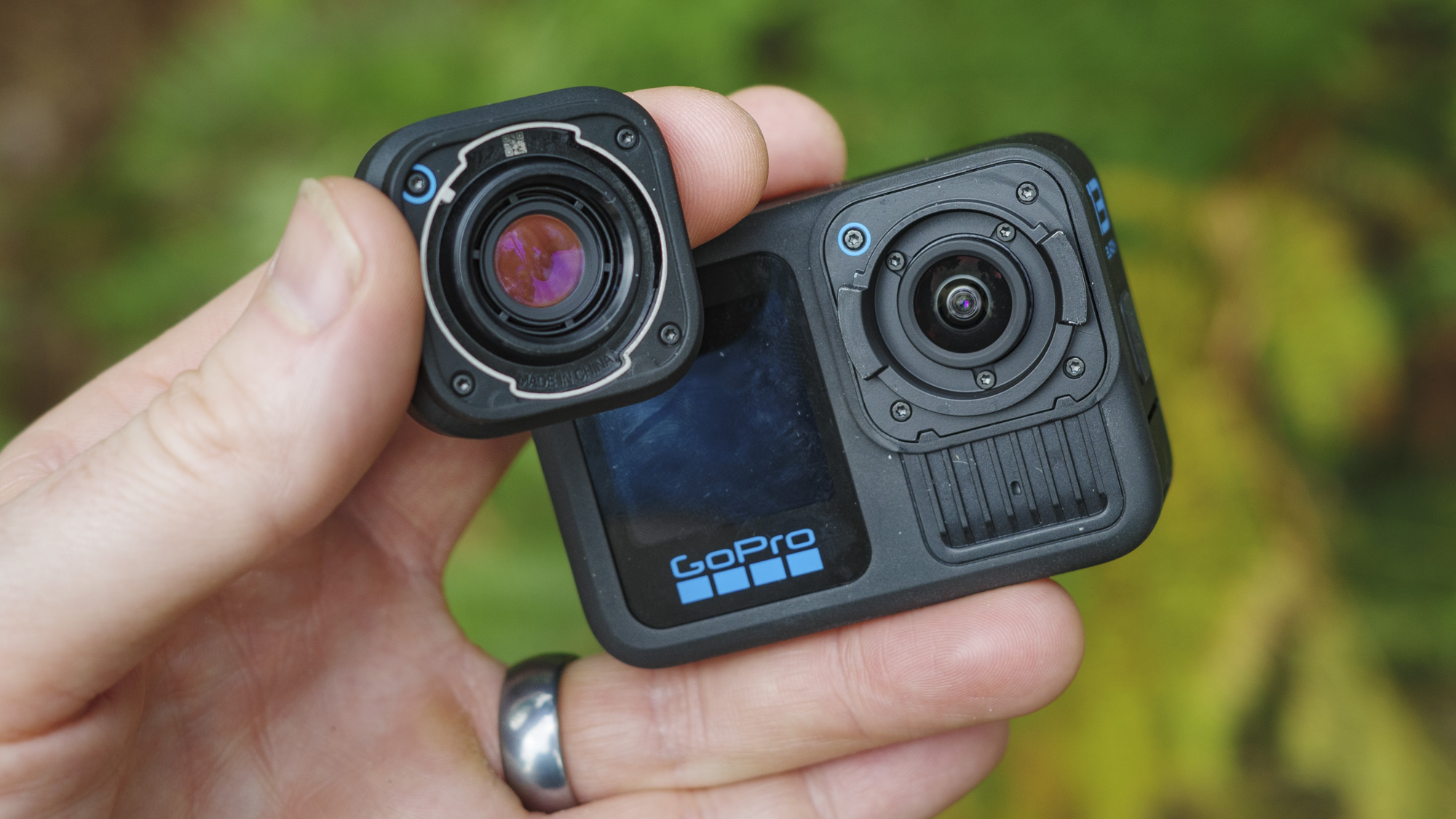
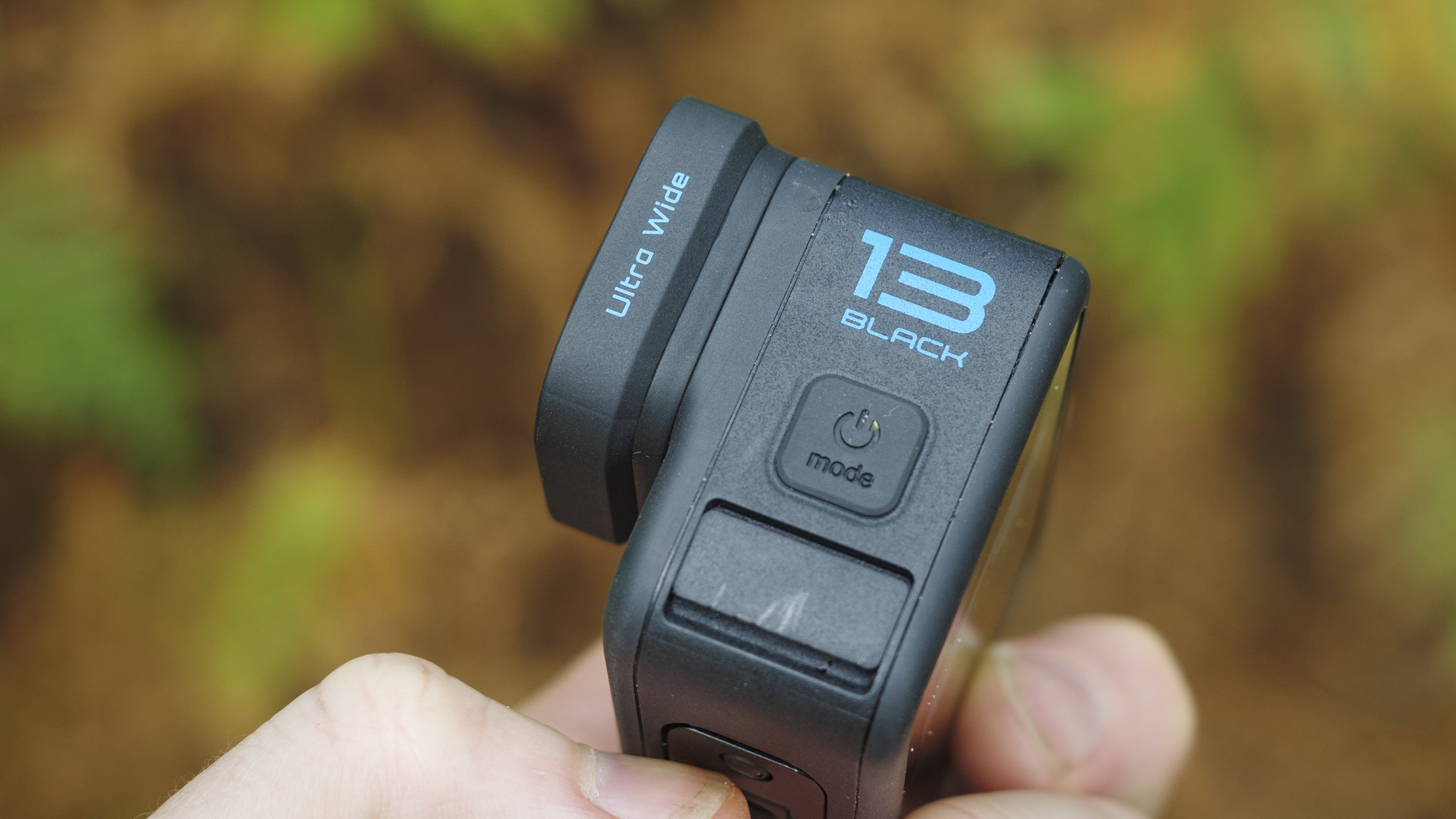
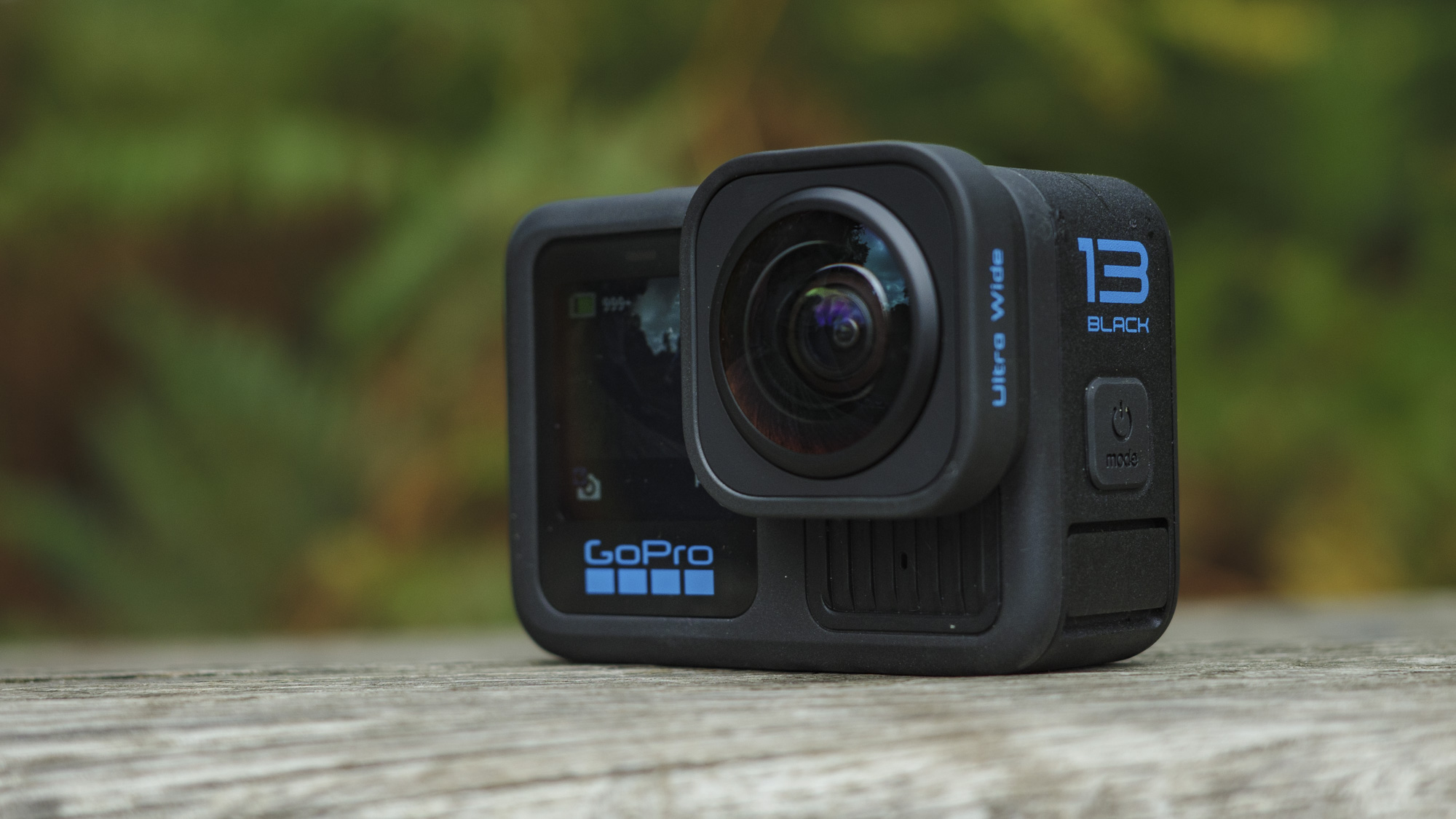
Specifications
Reasons to buy
Reasons to avoid
GoPro Hero 13 Black sample video
✅ You want a versatile action cam: Support for optional Lens Mods and ND filters make this a flexible tool to shoot with.
✅ You want cinematic video: New color profiles and slow-mo modes complement an arsenal of useful modes for filmmakers.
❌ You don’t need to swap lenses: If you don’t need the option to swap in new Lens Mods, previous editions are better value.
❌ You shoot a lot in low light: If you’re recording after dark, the DJI Osmo Action 5 Pro delivers better results than the 13 Black.
Like most recent GoPro flagships, the Hero 13 Black isn’t a radical upgrade from its predecessor. It has the same sensor, video resolution and useful 8:7 aspect ratio, the same class-leading HyperSmooth stabilization and the same waterproofing specs as the Hero 12 Black – and the Hero 11 Black before it. So if you already own either of those perfectly capable action cameras, it isn’t necessarily worth upgrading. But based on our in-depth testing, there are a few upgrades that make the Hero 13 Black our top pick.
Chief among them is a new range of Lens Mods and ND filters. These attach to a redesigned mount on the 13 Black that detects which accessory is attached and adjusts settings accordingly, instantly unlocking creative shooting options. In our review, we also praised the addition of magnetic mounting, as well as improved battery life and heat dissipation. Burst Slo-Mo mode also gives you the option to shoot 400fps at 720p, although clips are slow to process. While these improvements aren’t revolutionary, they all add up to make the Hero 13 Black the most complete GoPro action camera to date.
Read our in-depth GoPro Hero 13 Black review
The best budget action camera
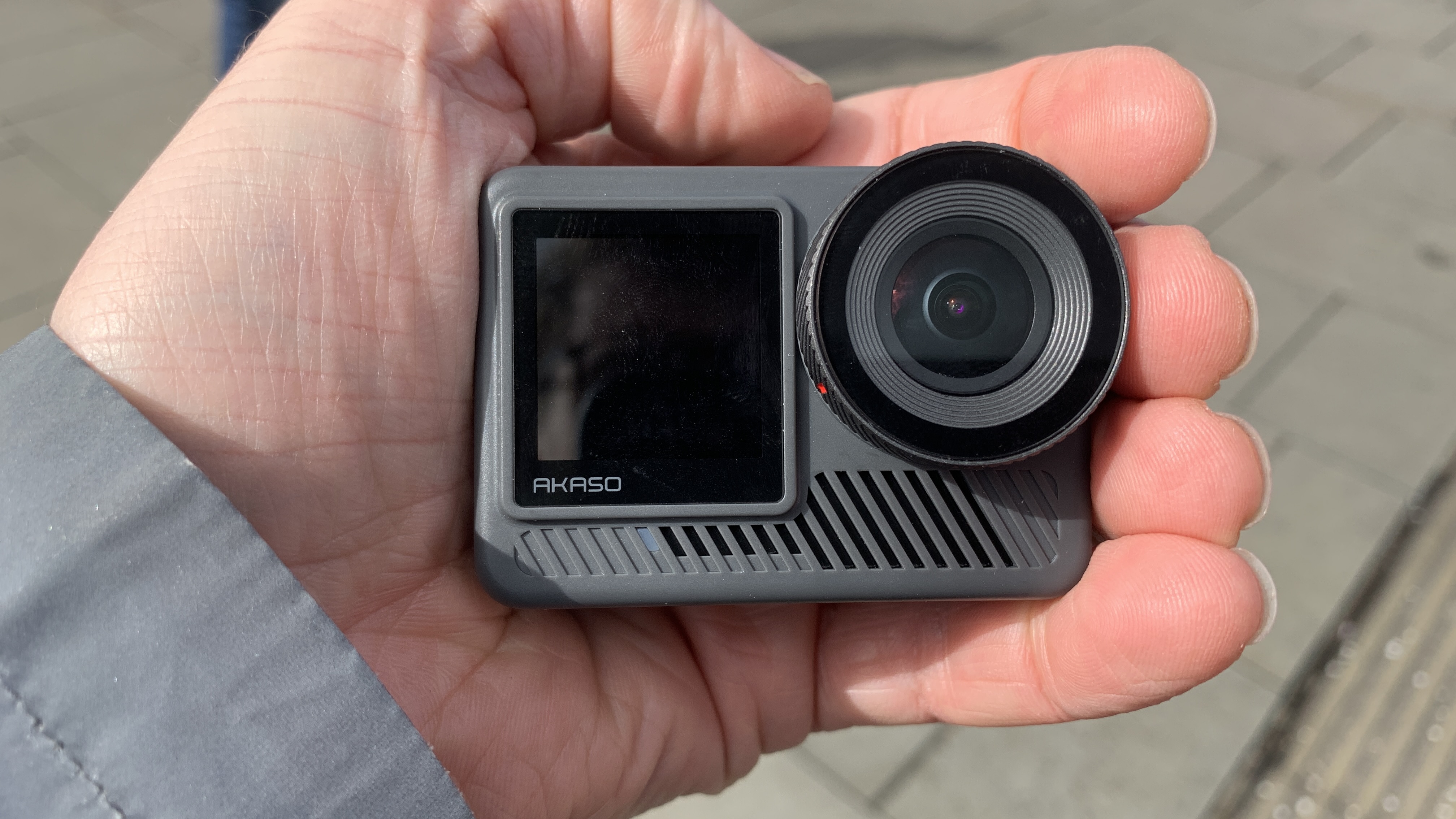
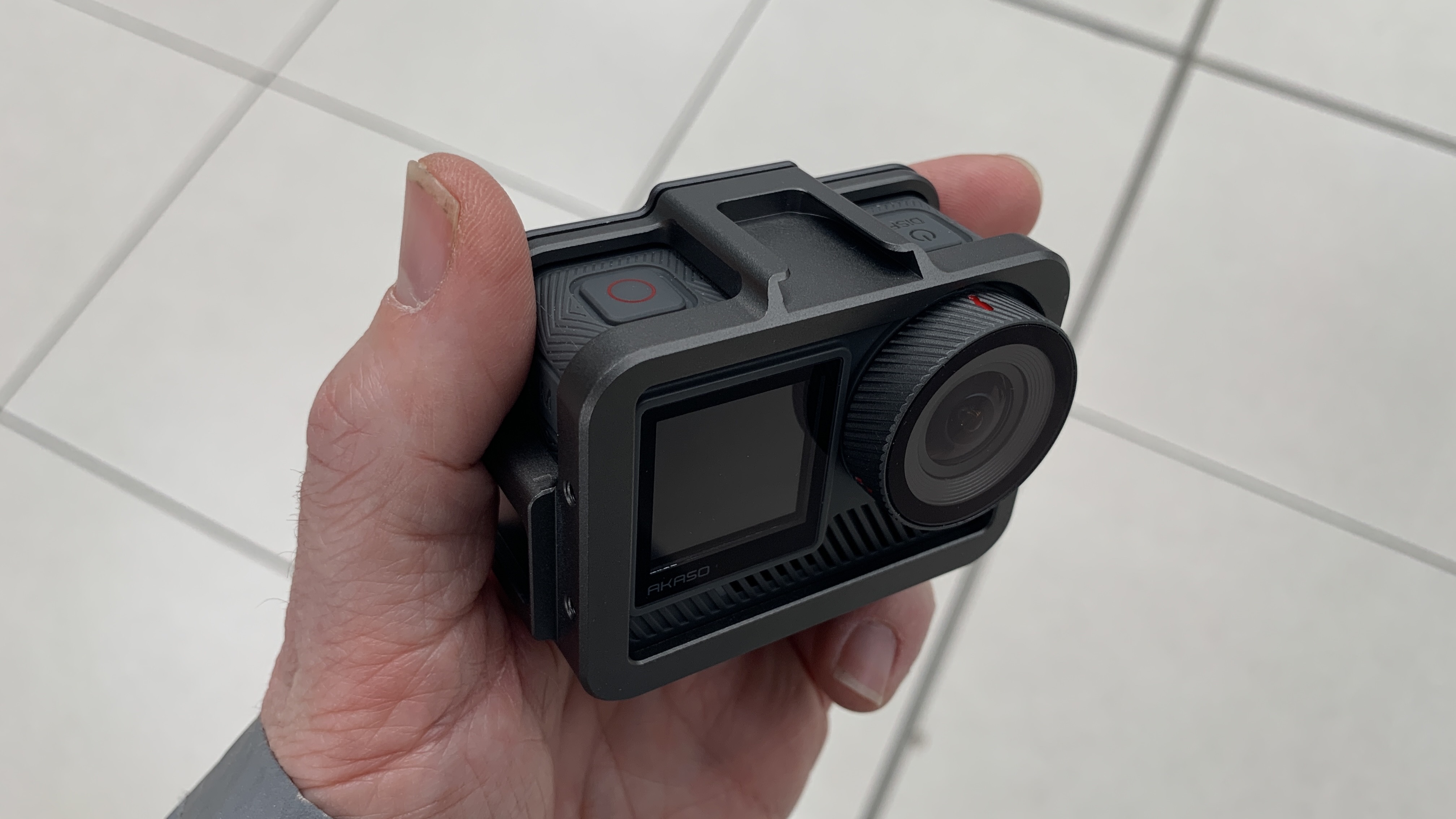
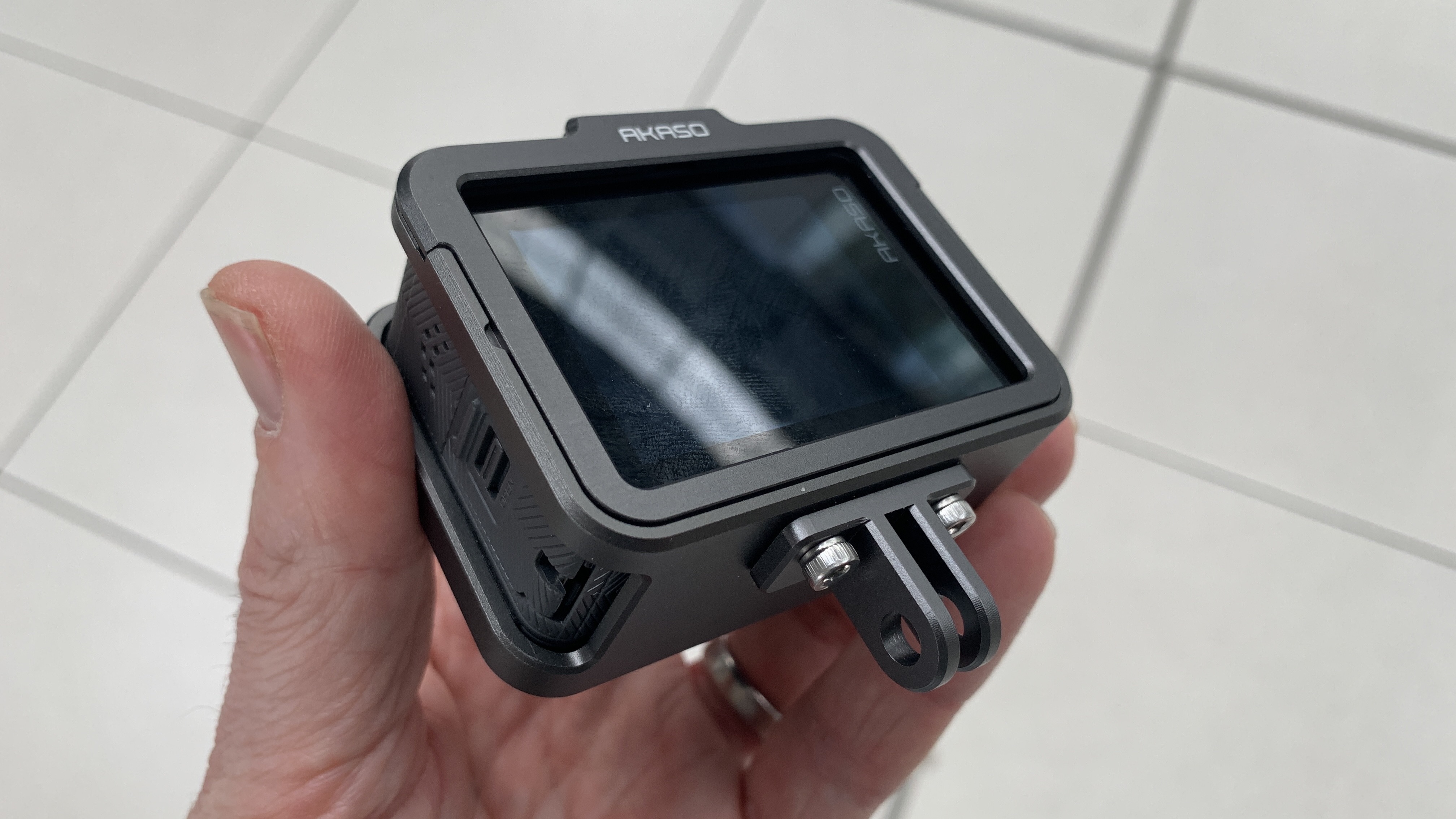
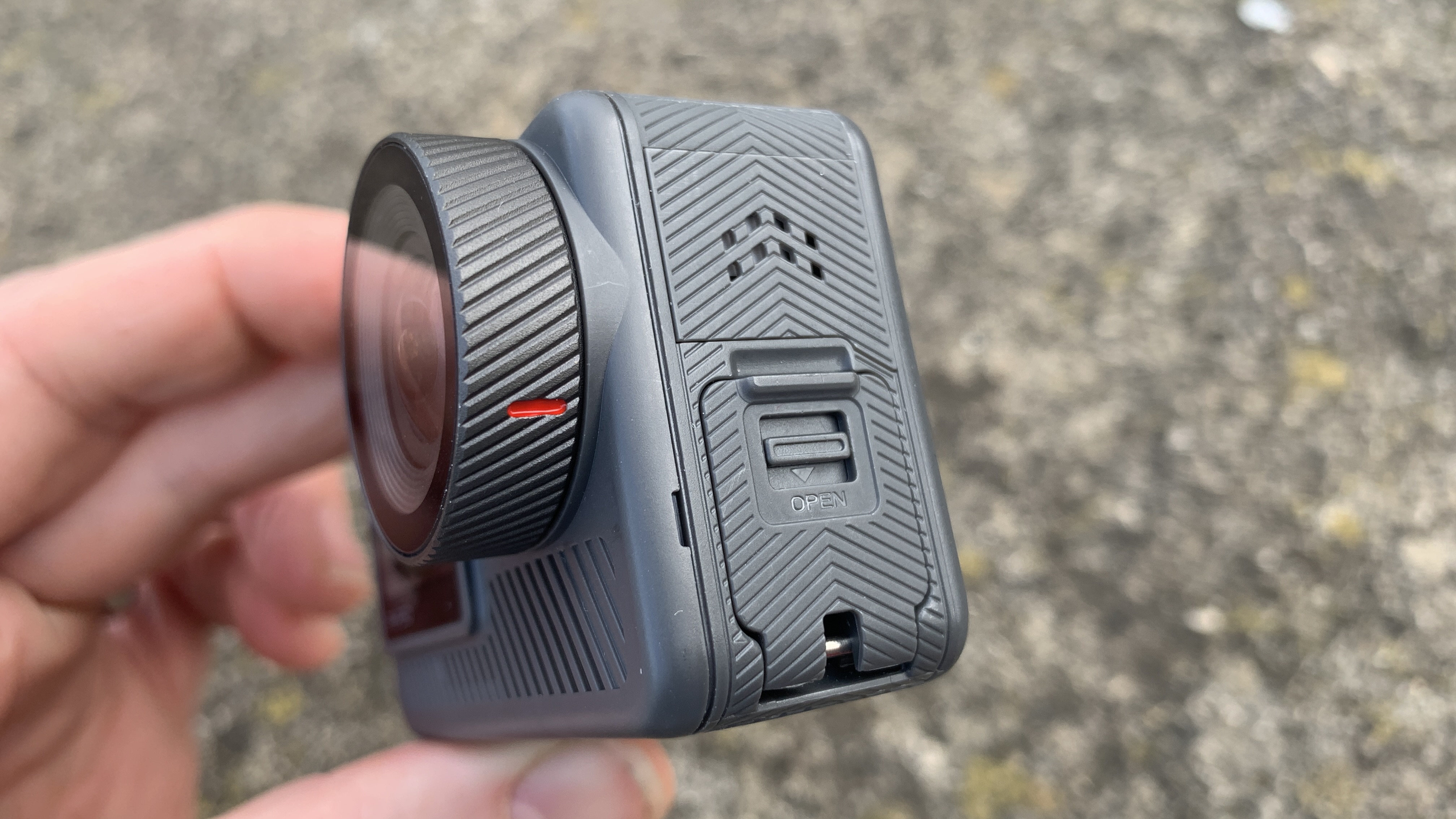
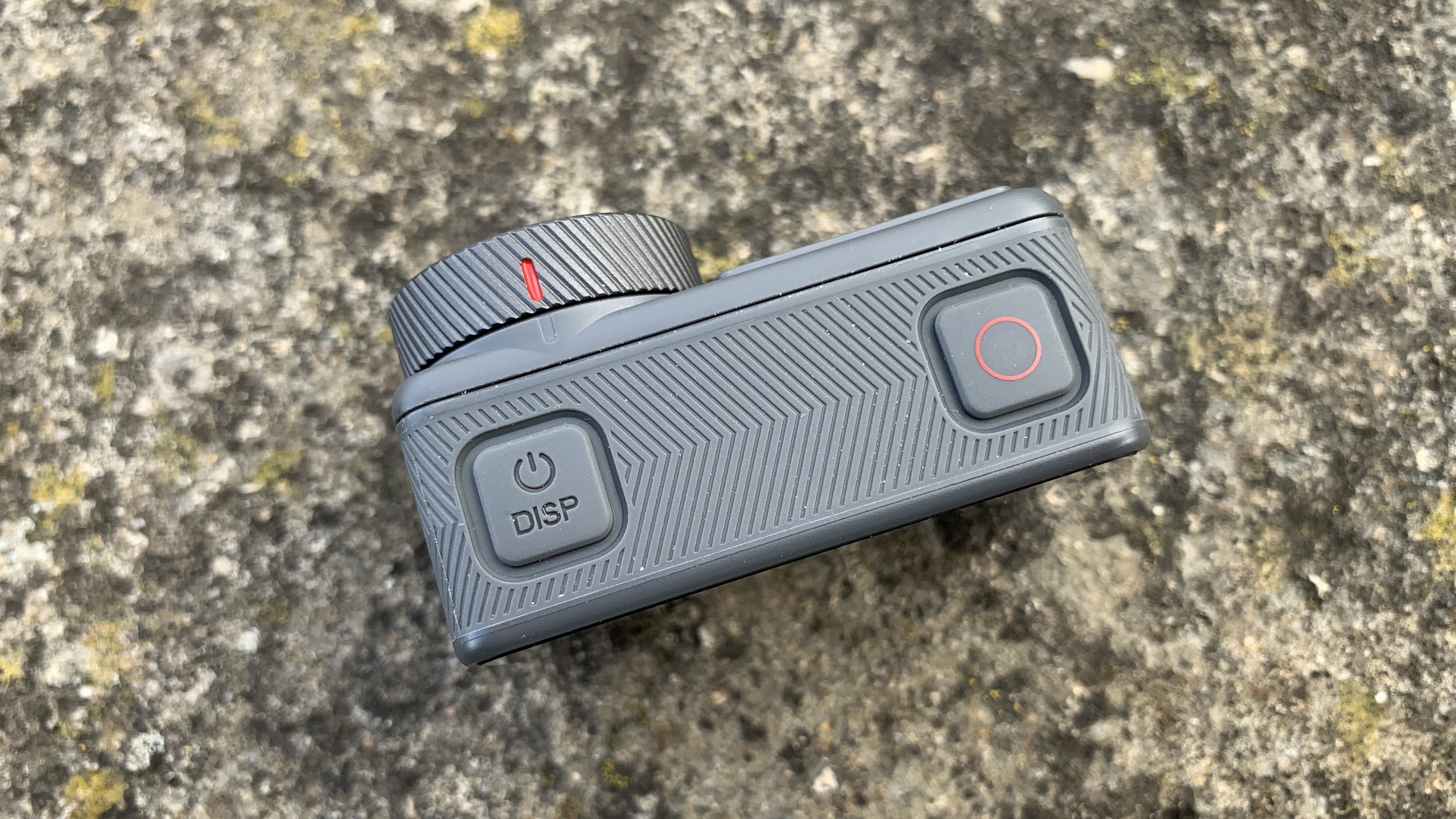
Specifications
Reasons to buy
Reasons to avoid
Akaso Brave 8 Lite sample video
✅ You're on a tight budget: The Akaso Brave 8 Lite offers fantastic features and value for a reasonable price.
✅ You want dual screens: Despite its low cost, the Brave 8 Lite features front and rear displays to help with framing.
❌ You need reliable stabilization: In shaky scenarios, image stabilization struggles to produce usable footage.
❌ You shoot a lot in low light: Video quality drops off significantly in low-light conditions, with a lot of noise.
A cheaper, lighter version of the Akaso Brave 8, the Lite is an affordable action camera for buyers on a budget. In our review, we noted that the cost savings can be felt in the flimsy plastic construction. Yet we also commented positively on its modern design, compact dimensions and lightweight build. Other takeaways from our testing include the smartphone app, which we found easier to use than the camera’s own interface. In ideal lighting, 4K video footage also proved vivid and accurate, if a little high in contrast.
That’s not the case in lower lighting, where we found that the sensor struggles, with a large amount of noise negatively affecting image quality. Stabilization was disappointing too, with the Brave 8 Lite failing to smooth out camera shake while walking or cycling. At 150 minutes of 1080p footage, battery life wasn’t remarkable either. Yet while its video quality won’t worry premium flagships, we still think the Brave 8 Lite offers fantastic value, with a solid set of specs that’s tough to beat for the price.
Read our in-depth Akaso Brave 8 Lite review
The best premium 8K action camera
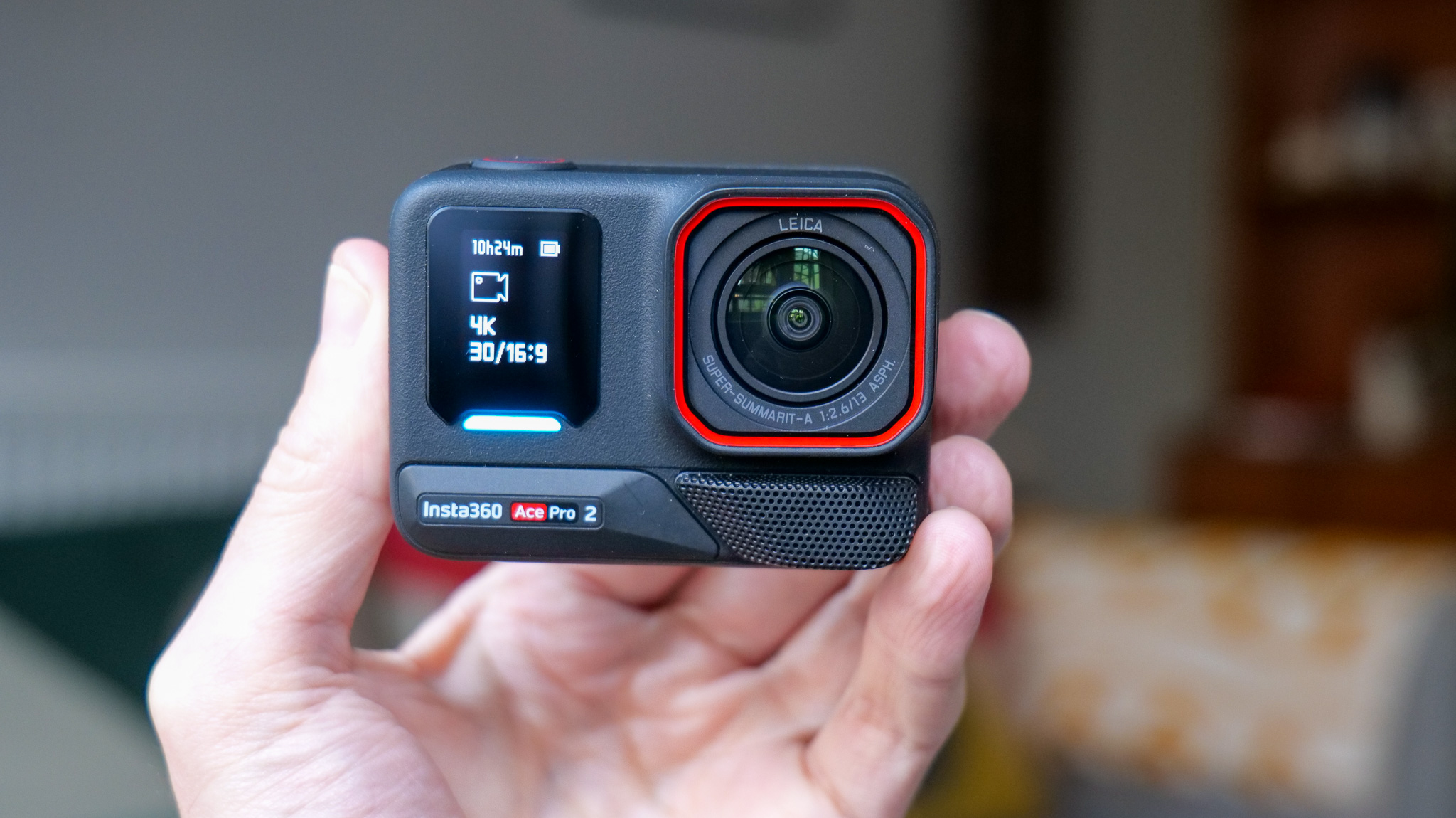
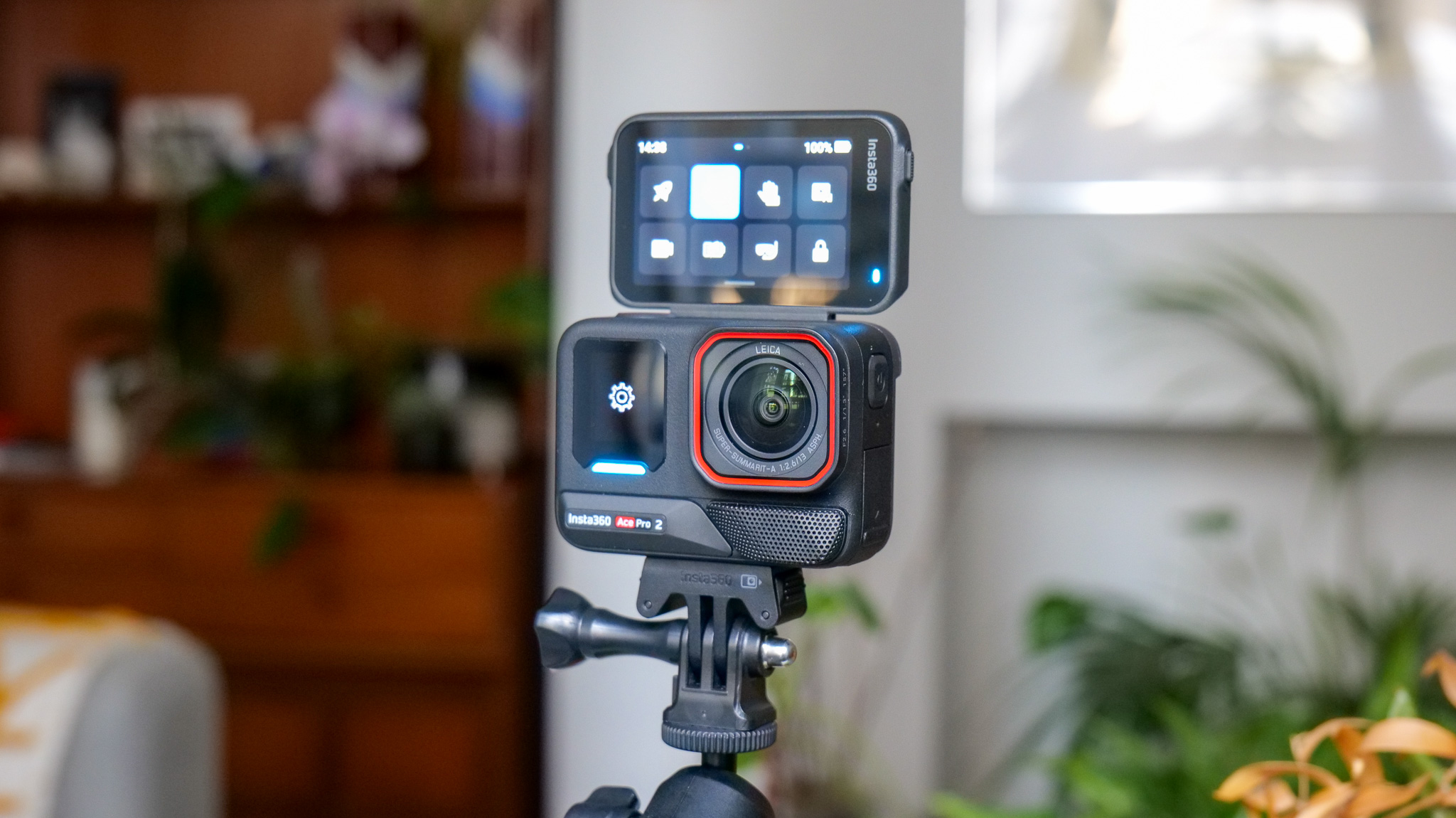
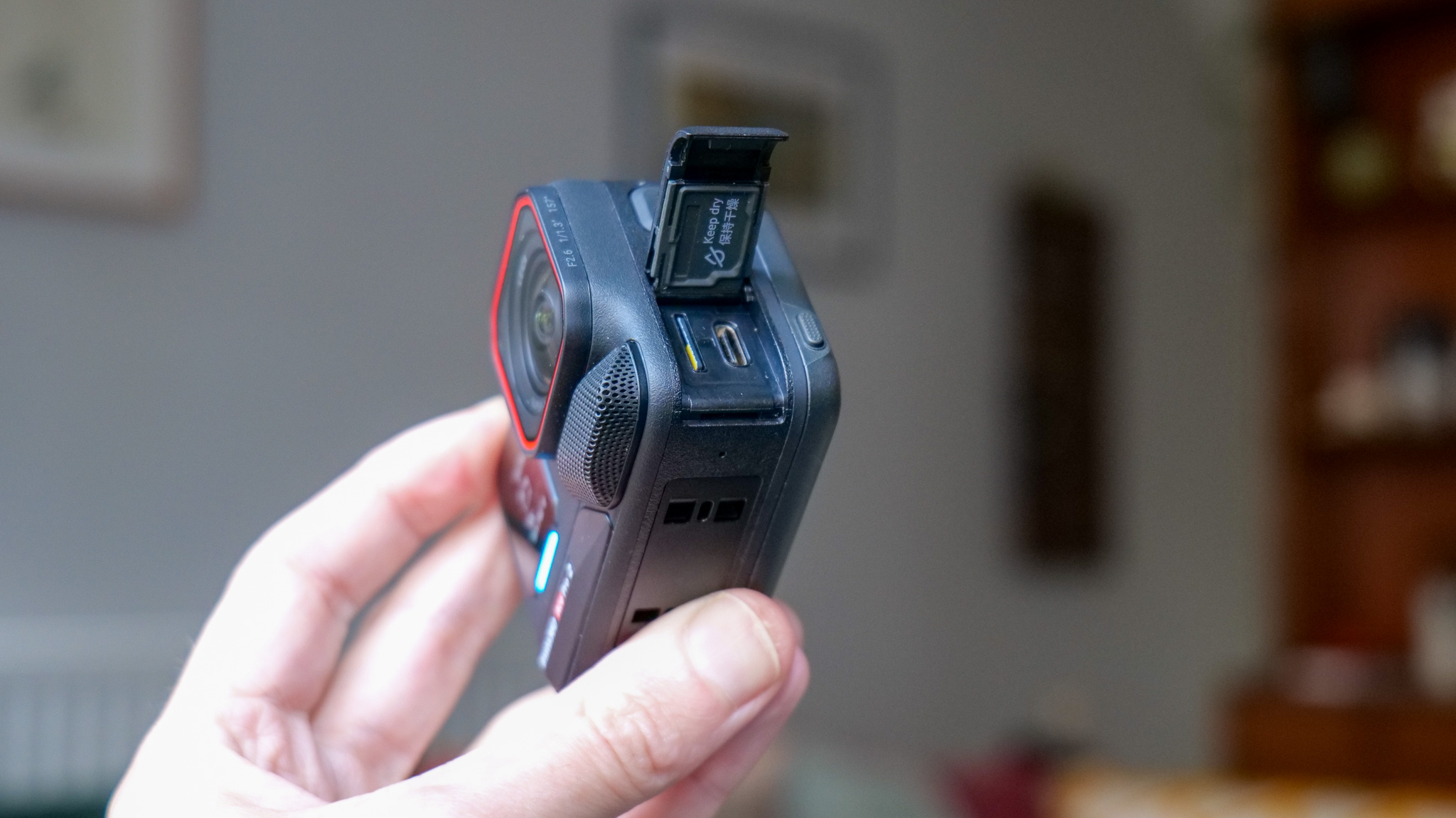
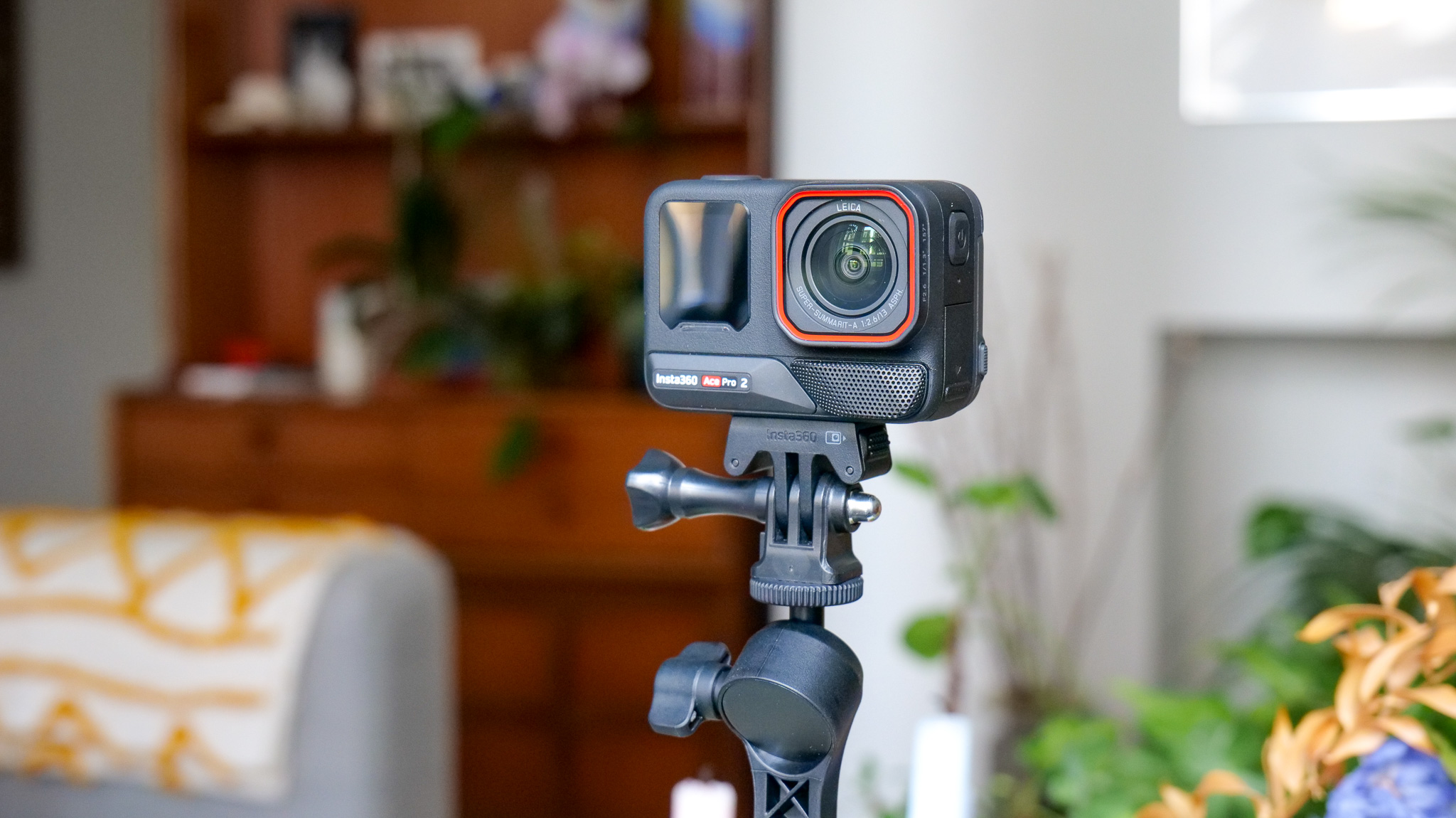
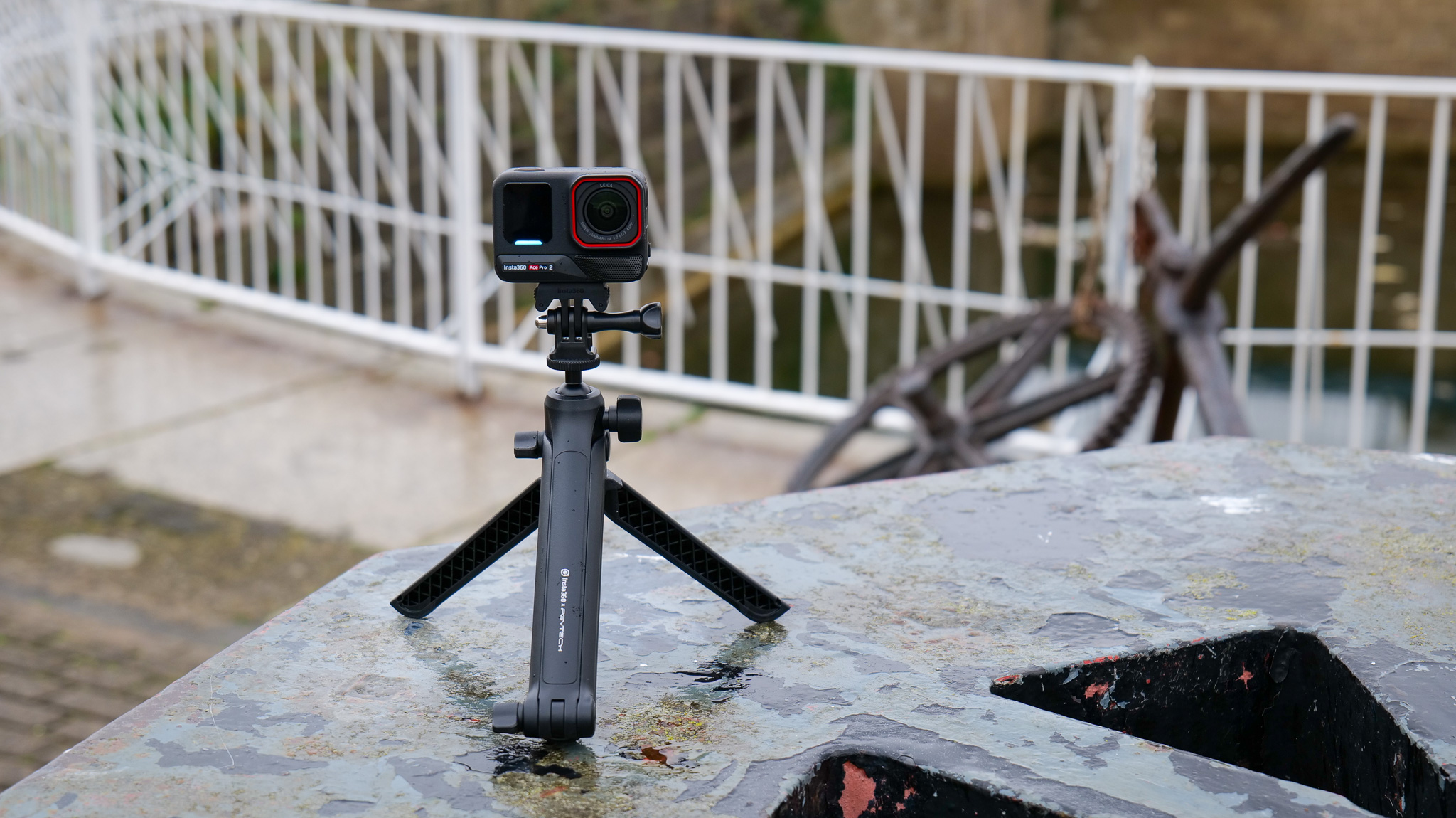
Specifications
Reasons to buy
Reasons to avoid
Insta360 Ace Pro 2 sample video
✅ You need 8K recording: If you need video at the highest possible resolution, the Ace Pro 2 is one of the few action cameras capable of 8K video.
✅ You want a quality all-rounder: A small, rugged tool with a decent-sized screen and decent low-light video, the Ace Pro 2 performs well in all conditions.
❌ You need perfect 8K video: While the resolution is there, 8K recording doesn’t support the best image stabilization or the full set of color profiles.
❌ You don’t like a flip screen: The flip-up screen gives a bigger front-facing preview, but you have to flip it down when you switch back to rear recording.
Like the original Ace Pro, 8K video is what grabs the headlines with the Ace Pro 2: it’s one of the few action cameras that can record at that resolution, now at frame rates up to 30fps. Our tests found that 8K recording isn’t a perfect experience, though. You don’t get the top level of image stabilization, nor support for the flat I-log color profile, and overheating can be an issue. What we actually found more impressive in our review is the Ace Pro 2’s overall performance as an all-round action camera.
This is a small, lightweight yet rugged tool. Its 2.5-inch flip-up touchscreen isn’t the most useful if you need to quickly switch from front to rear recording, but it does offer a larger perspective when recording solo. 4K video results proved excellent and we were impressed by the quality of low-light footage for an action camera, with useful I-log support for color grading in post. Image stabilization performance was also excellent, making this a very versatile choice.
Read our in-depth Insta360 Ace Pro 2 review
The best underwater action camera
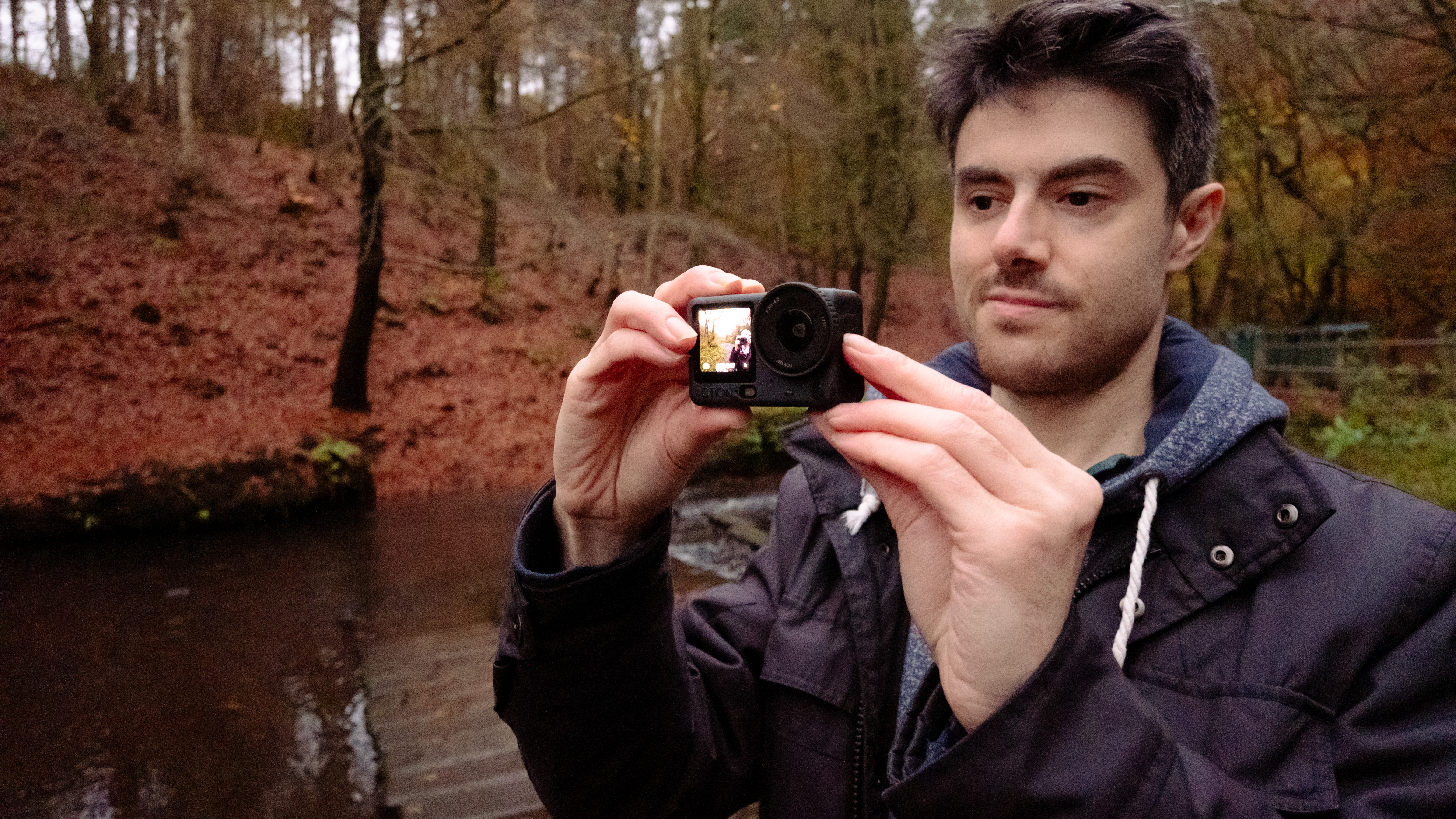
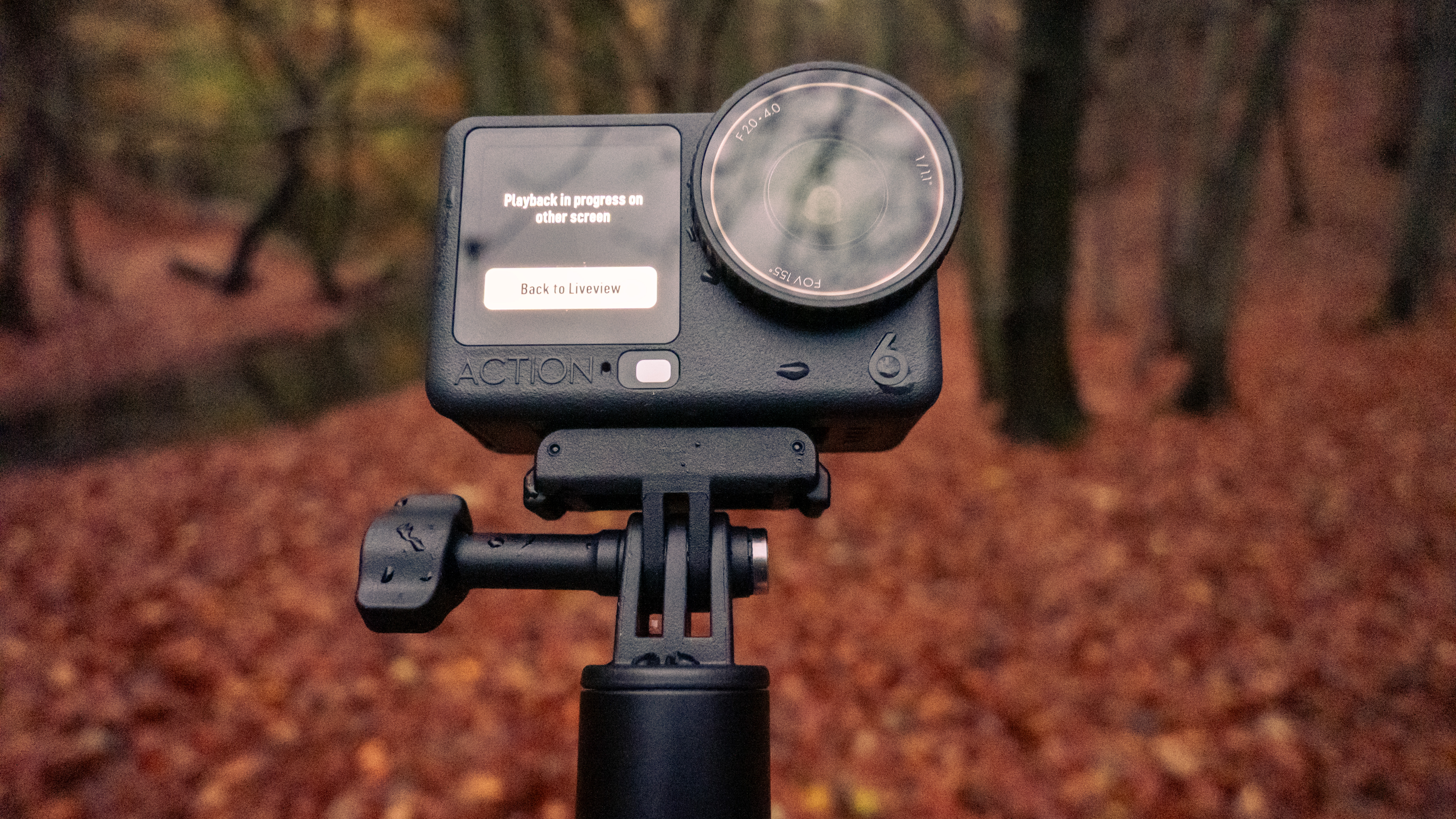
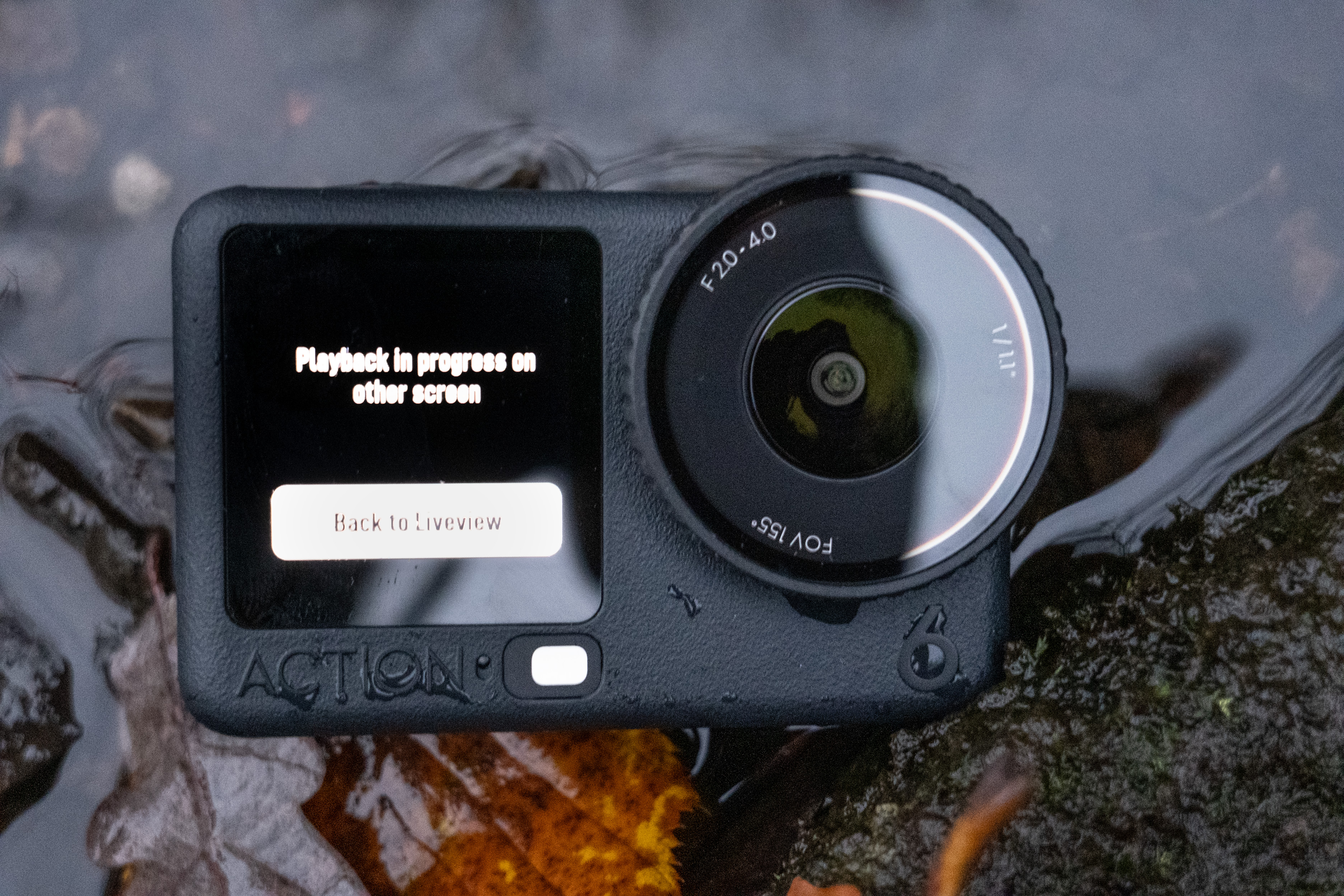
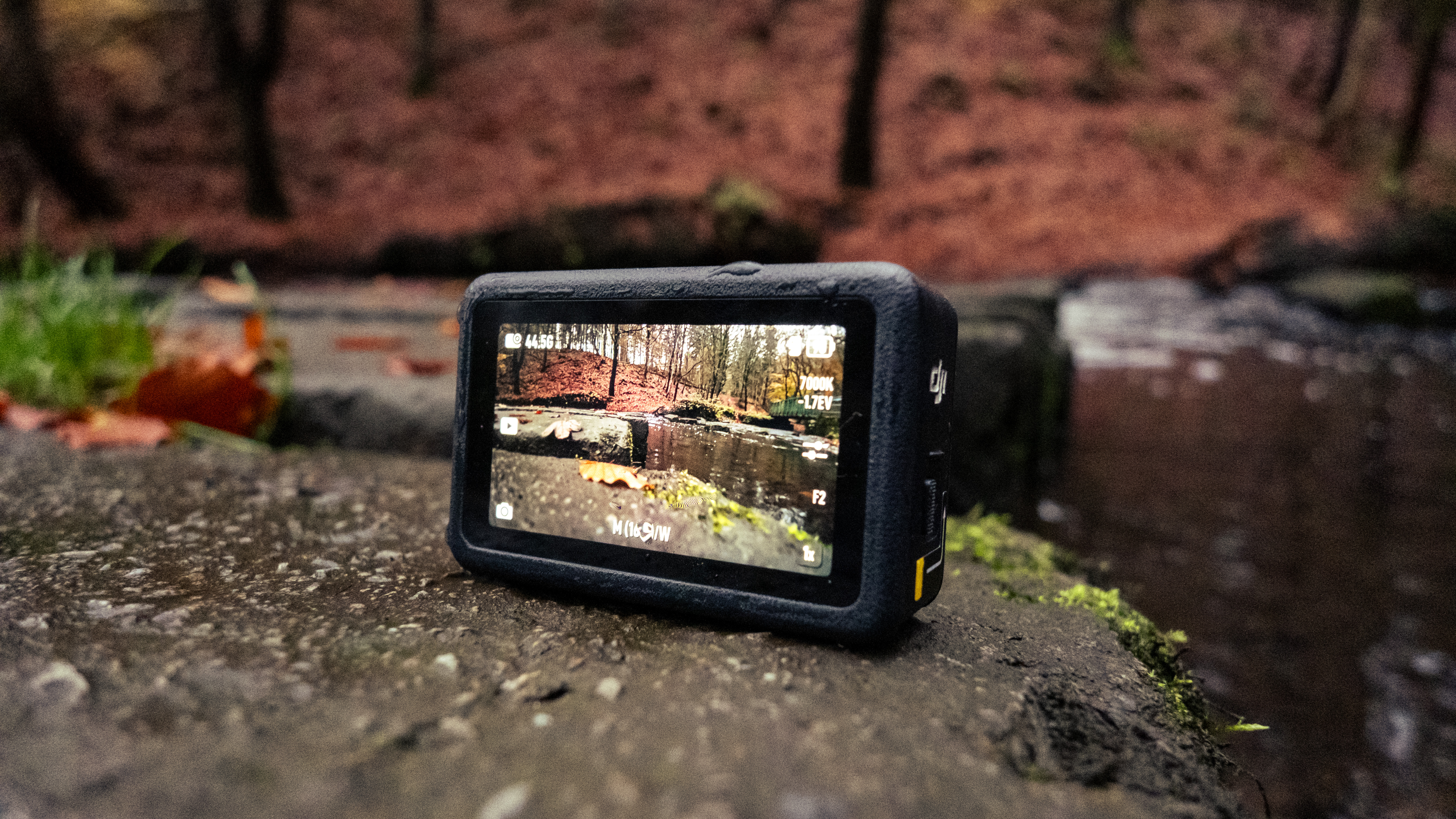
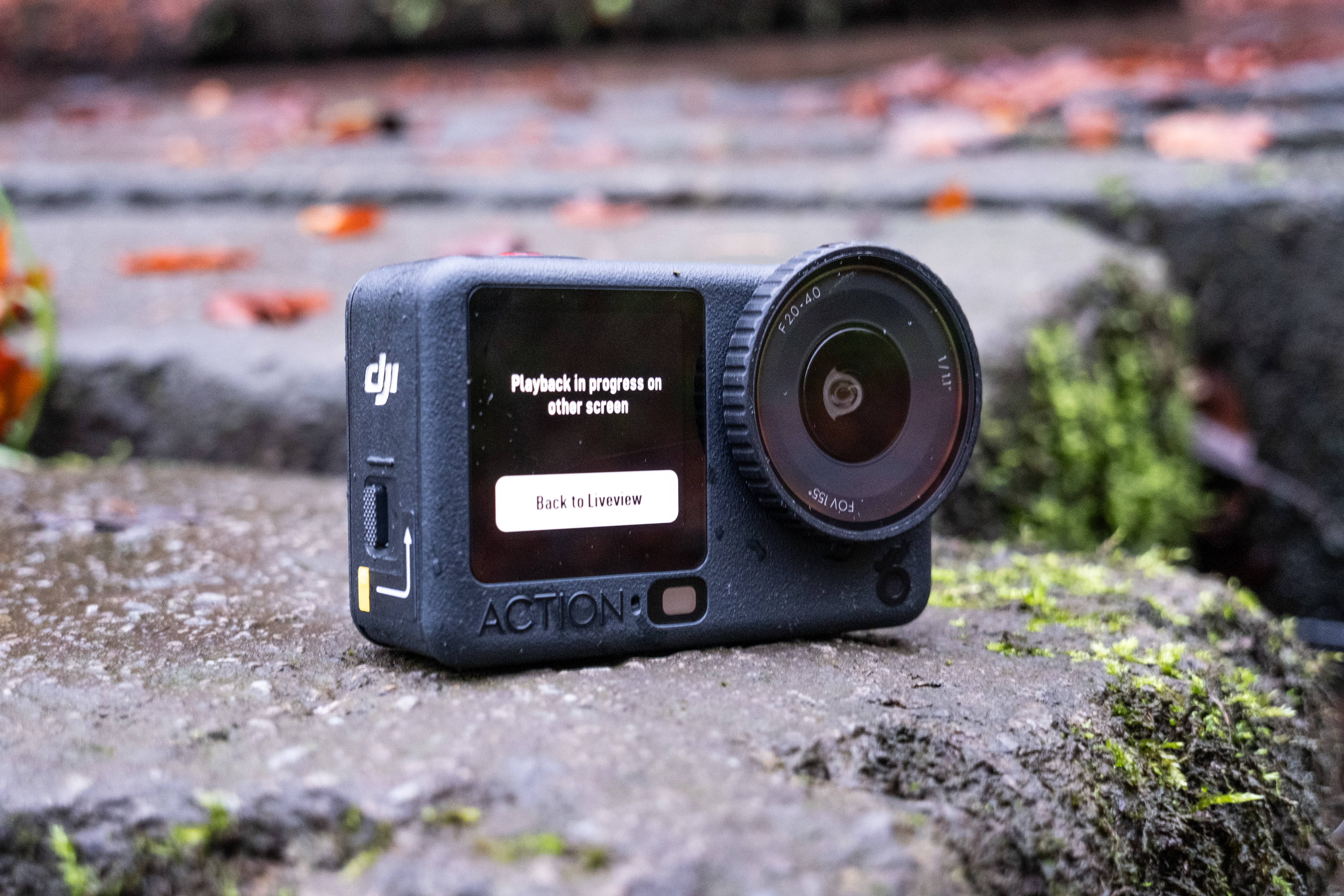
Specifications
Reasons to buy
Reasons to avoid
DJI Osmo Action 6 sample video
✅ You want a reliable action cam: Freeze-proof, waterproof to 20m and good for up to 4 hours, the Action 6 is as solid as they come.
✅ You have one of DJI's mics for audio: Direct compatibility with one of DJI’s current tiny wireless mic makes the Action 6 great for voiceovers.
❌ You want the sharpest footage: 4K will be fine for most, but others offer higher-res results at up to 8K.
❌ You want perfect results after dark: SuperNight mode delivers better results than a GoPro, but there's still aggressive in-camera processing.
Breathing down the neck of GoPro’s Hero 13 Black, the DJI Osmo Action 6 is a feature-packed action camera that gives my top pick a good run for its money. Waterproof to 60ft / 20m, it can survive at double the case-free depth of GoPro’s best. With a wider window of operating temperatures, it’s the best choice for shooting in all conditions. We also praised its interface in testing: the Action 6 is small and light, with best-in-class front and rear OLED touch displays that are bright, sharp and clear.
While its maximum 4K resolution is bettered by others in this list, we were impressed by the upgraded and larger 1/1.1-inch sensor over the Action 5 Pro's which delivers excellent dynamic range in our test footage, supported by 10-bit color depth. We also praised the Action 6’s long battery life and reliable video stabilization in our review, as well as the ability to pair it seamlessly with one of DJI's remote mics for crisp wireless audio recording on location. Like all cameras in this guide, image quality does drop off in low lighting, but DJI’s SuperNight mode still produces better results than most action cameras. If you want something reliable, versatile and more affordable than the GoPro Hero 13 Black, this is your winner.
Read our in-depth DJI Osmo Action 6 review
The best 360-degree action camera
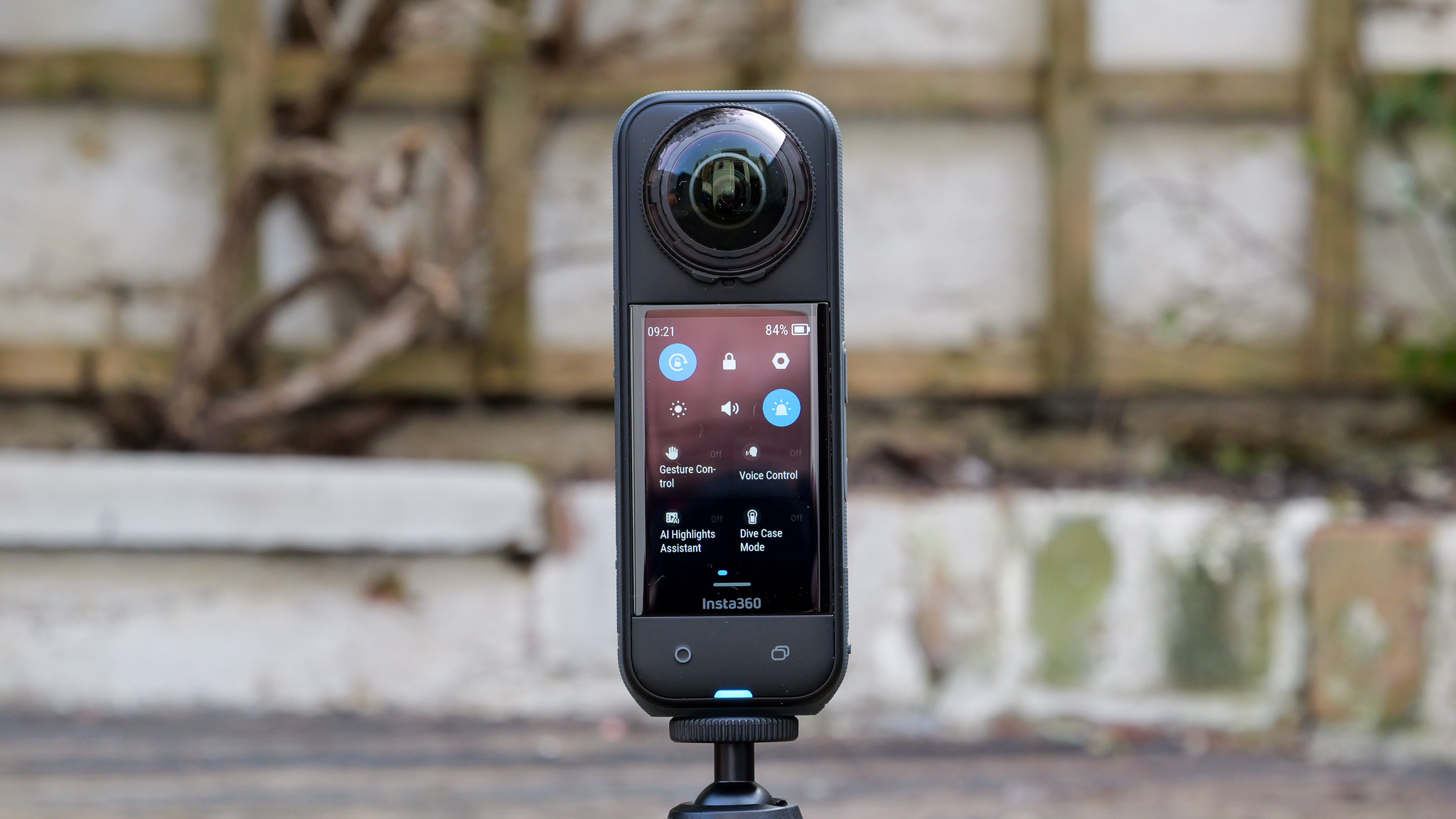
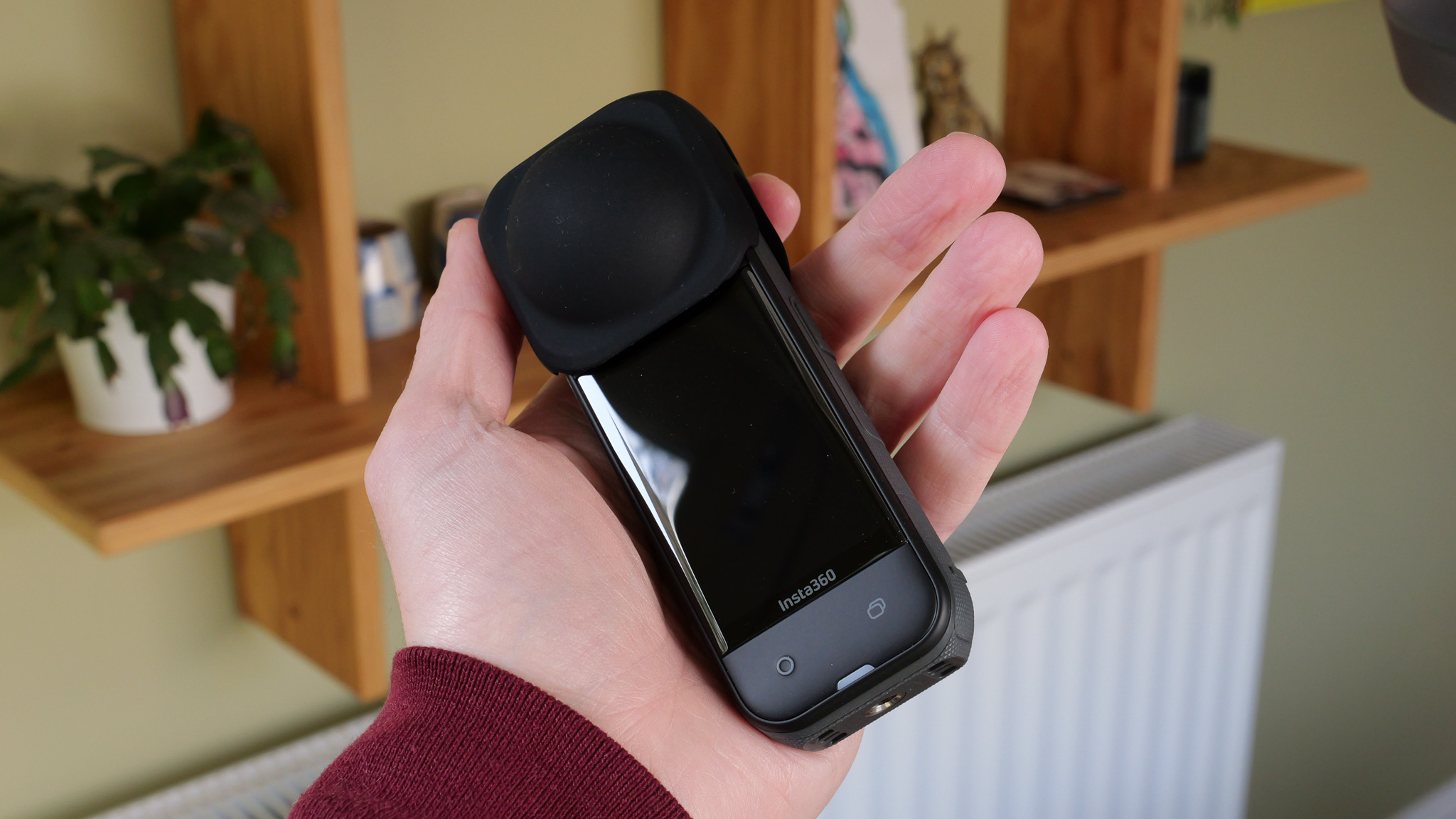
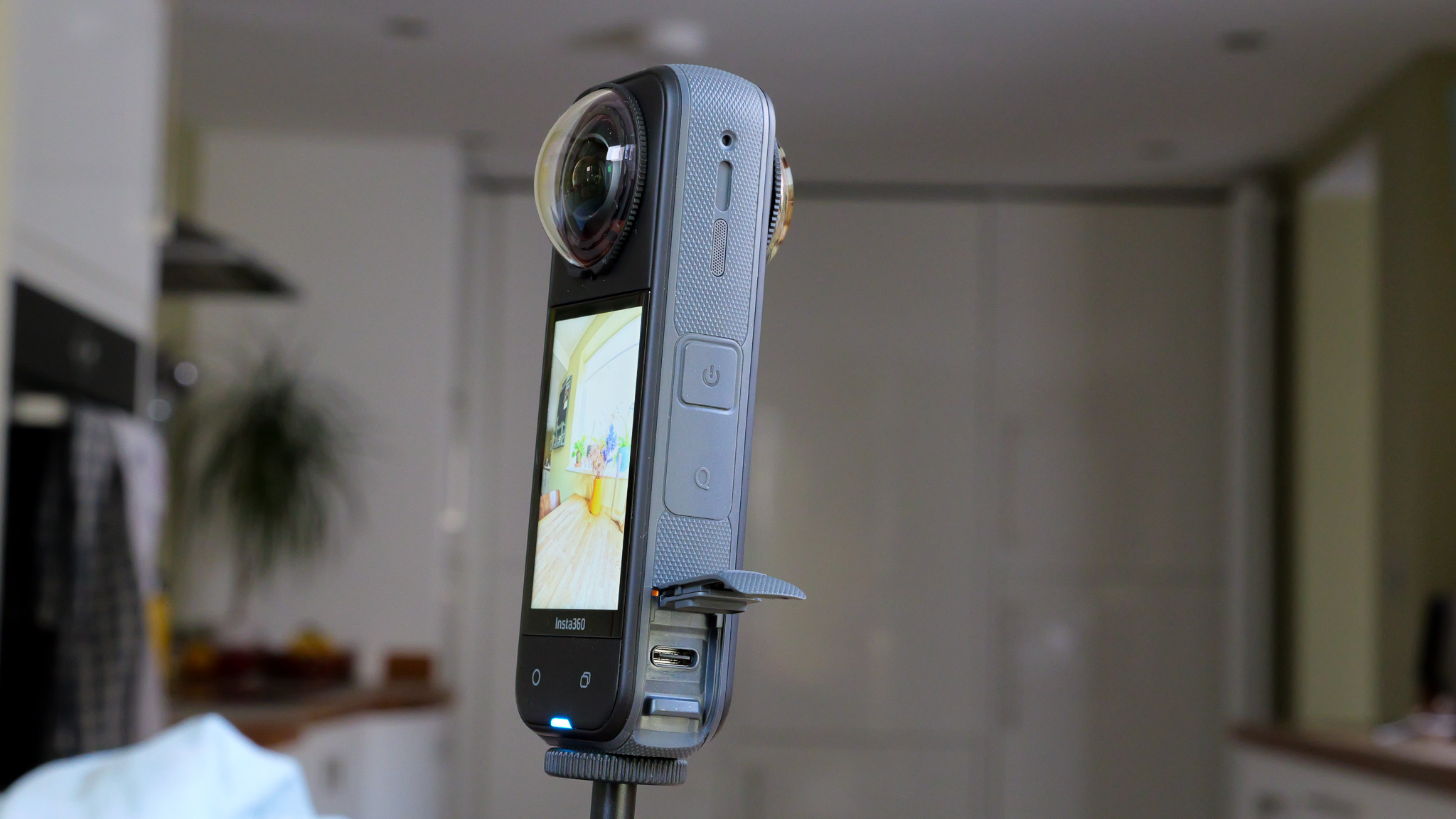
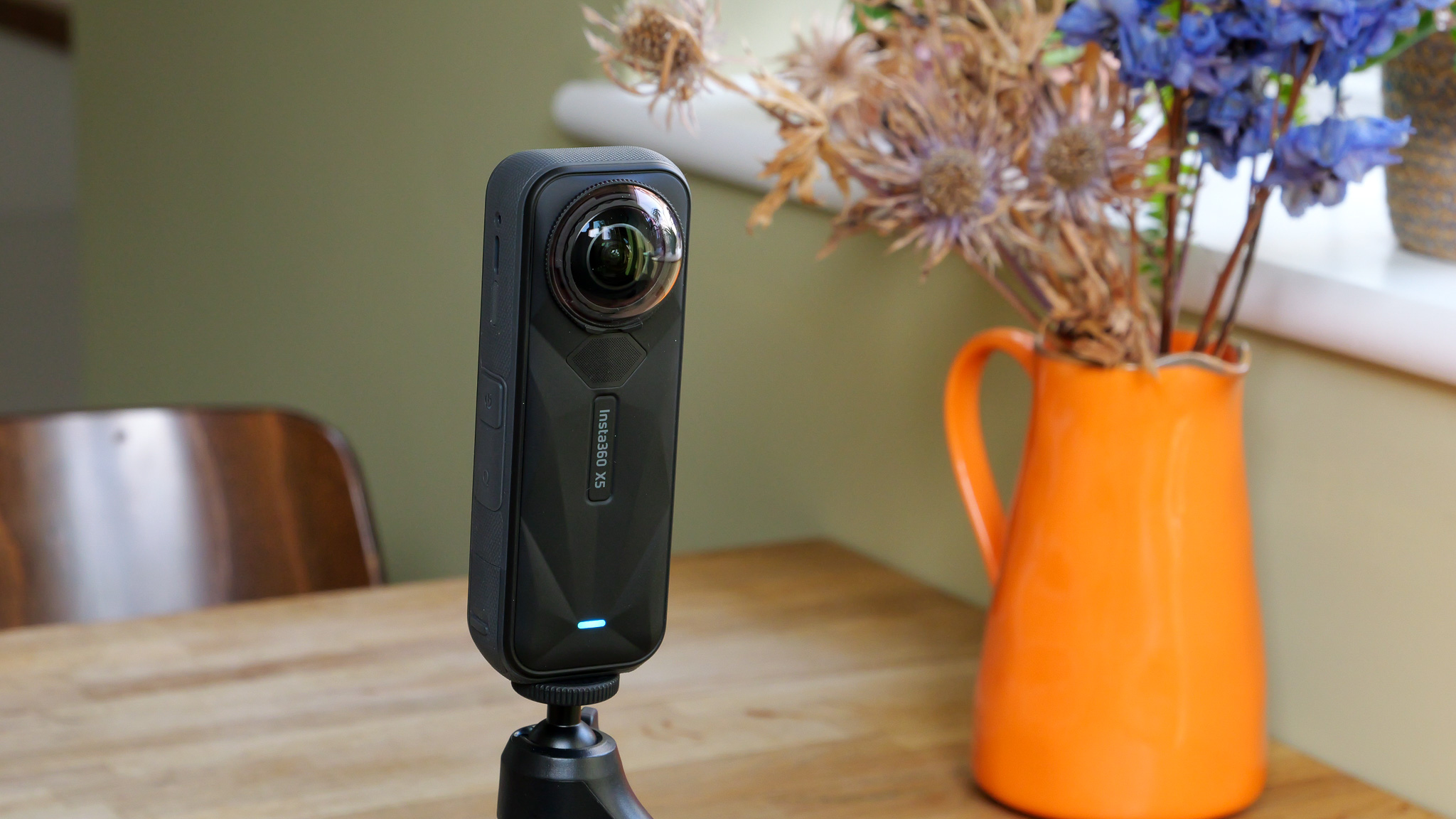
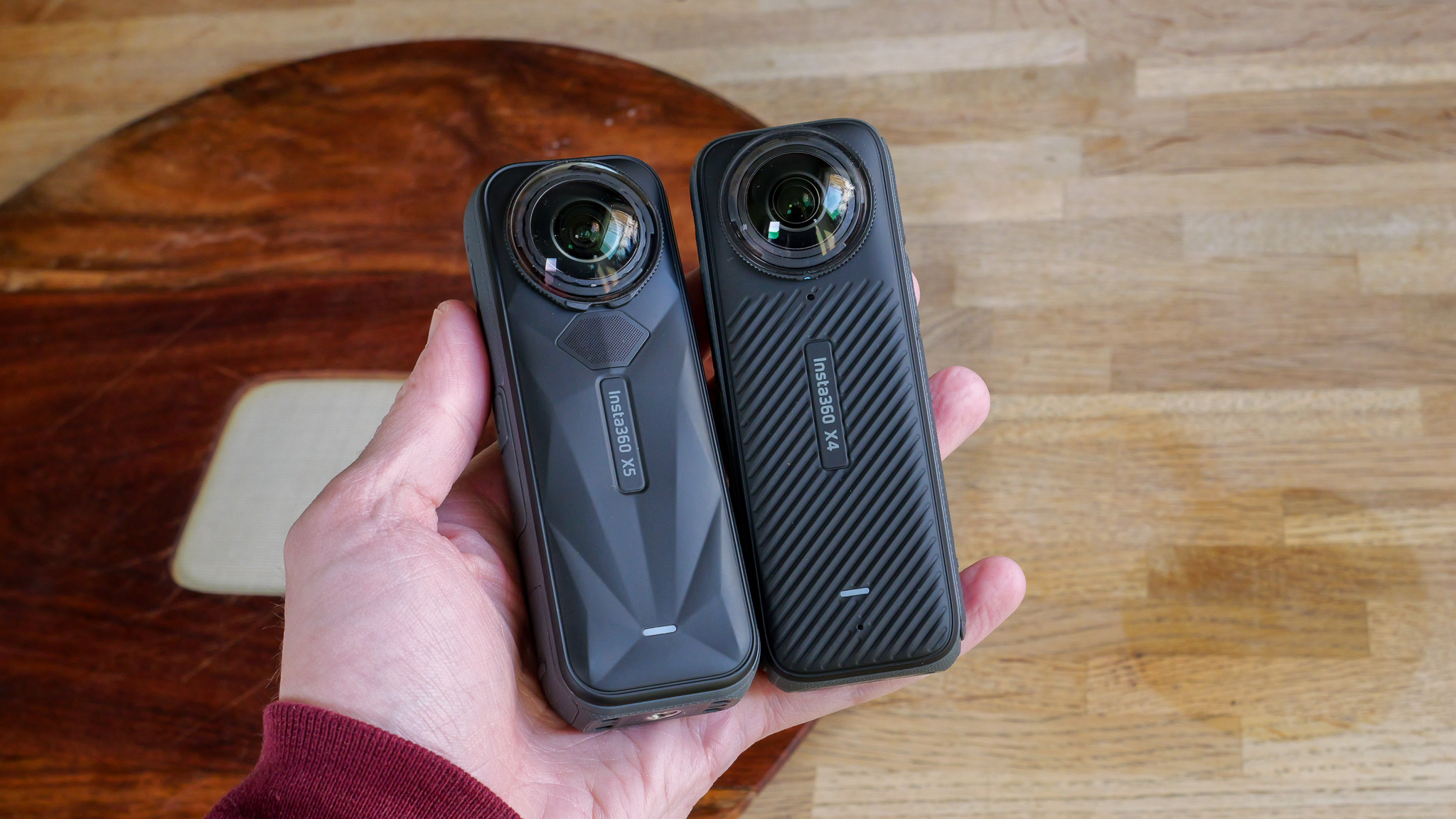
Specifications
Reasons to buy
Reasons to avoid
Insta360 X5 sample video
✅ You want the very best 360-degree camera: There's now fierce rivals in the shape of the DJI Osmo 360 and GoPro Max 2, but I reckon the X5 is still the best 360 camera overall.
✅ You want a really versatile action camera: 360-degree video at 8K, as well as single-lens 4K shooting and a 100fps slow-mo mode, make the X5 a flexible tool.
❌ You don’t have the hardware for large files: 8K video files take a huge amount of space and need some serious processing power to handle them.
❌ You need better value: The X5 is the best but also the priciest pocket 360 camera. GoPro's Max 2 is cheaper, DJI's Osmo 360 cheaper still, and both of those cameras shoot superb 8K 360 video too.
If you want to capture action in 360 degrees, I think the Insta360 X5 is the best tool for the job. With larger 1/1.28-inch sensors, its top 8K resolution video looks better than in the X4, and it's hit with less limitations at that setting too.
As well as better low light quality, the X5 feels all-round more rugged; there's deeper waterproofing now up to 15m (49ft) and cost-effective user-replaceable lenses – combined you simply have more peace of mind when taking the X5 to extremes. Oh and there's also neat lock-on points for third-party camera mounts.
Insta360's app remains a powerful editor, even if you'll need a decent phone to process those big files. It's not a complete win for the X5, though. Argualbly there isn't enough reason for existing X4 owners to upgrade, while the X5 now has hot competition in the shape of the GoPro Max 2 and DJI Osmo 360. Both of those cameras run the X5 close, all while coming in ay much lower price points.
Read our in-depth Insta360 X5 review
The best modular action camera
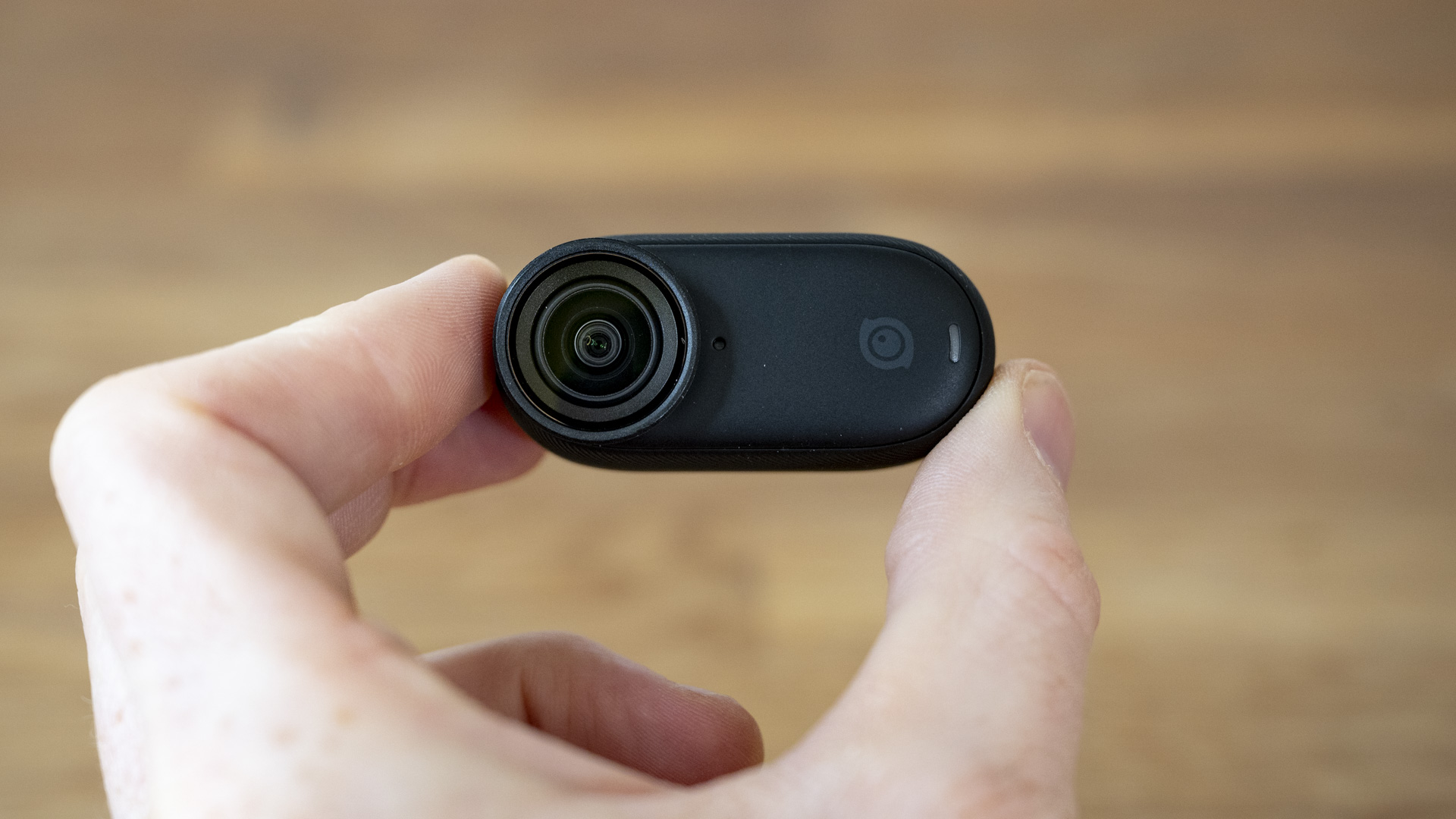
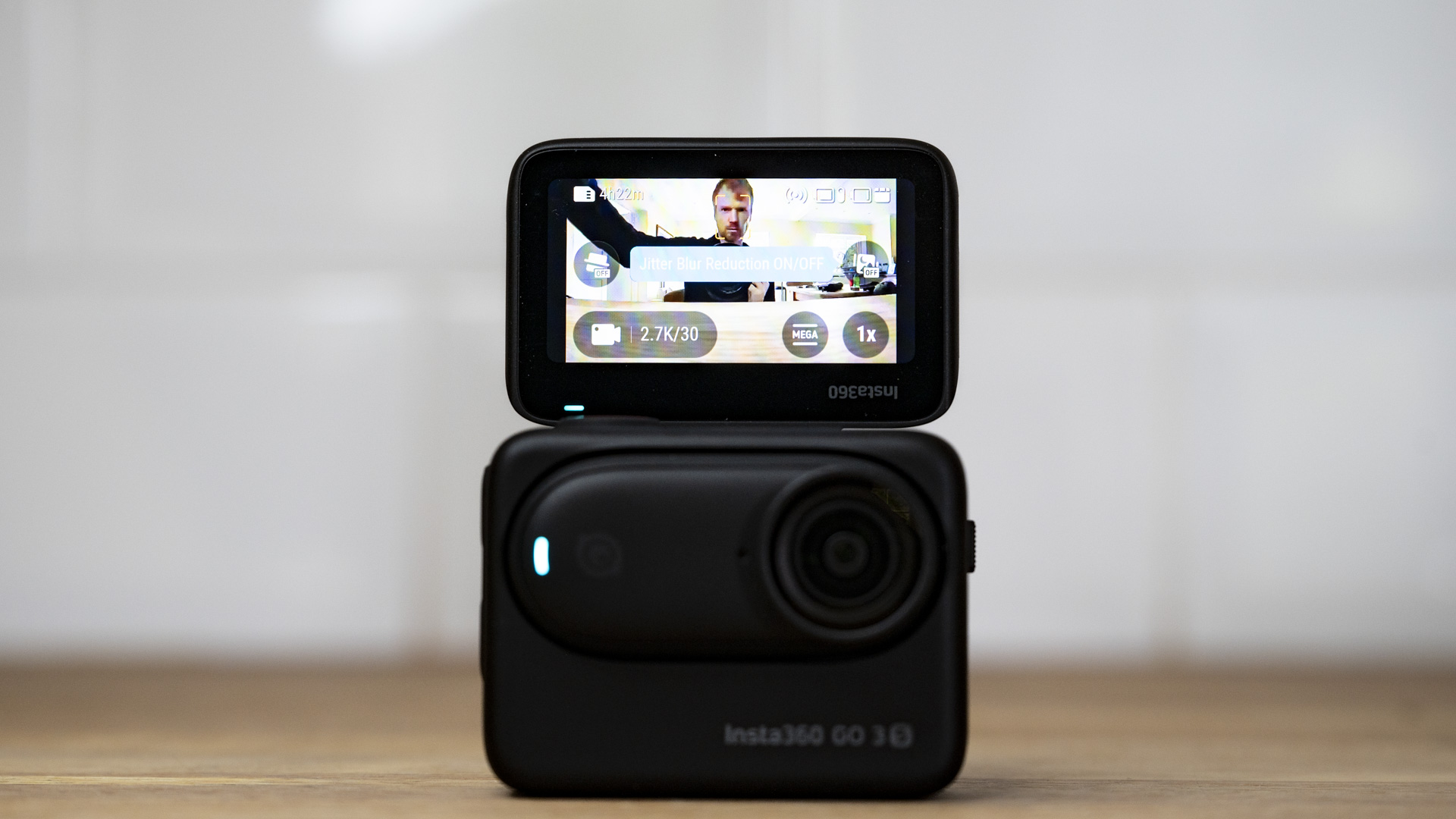
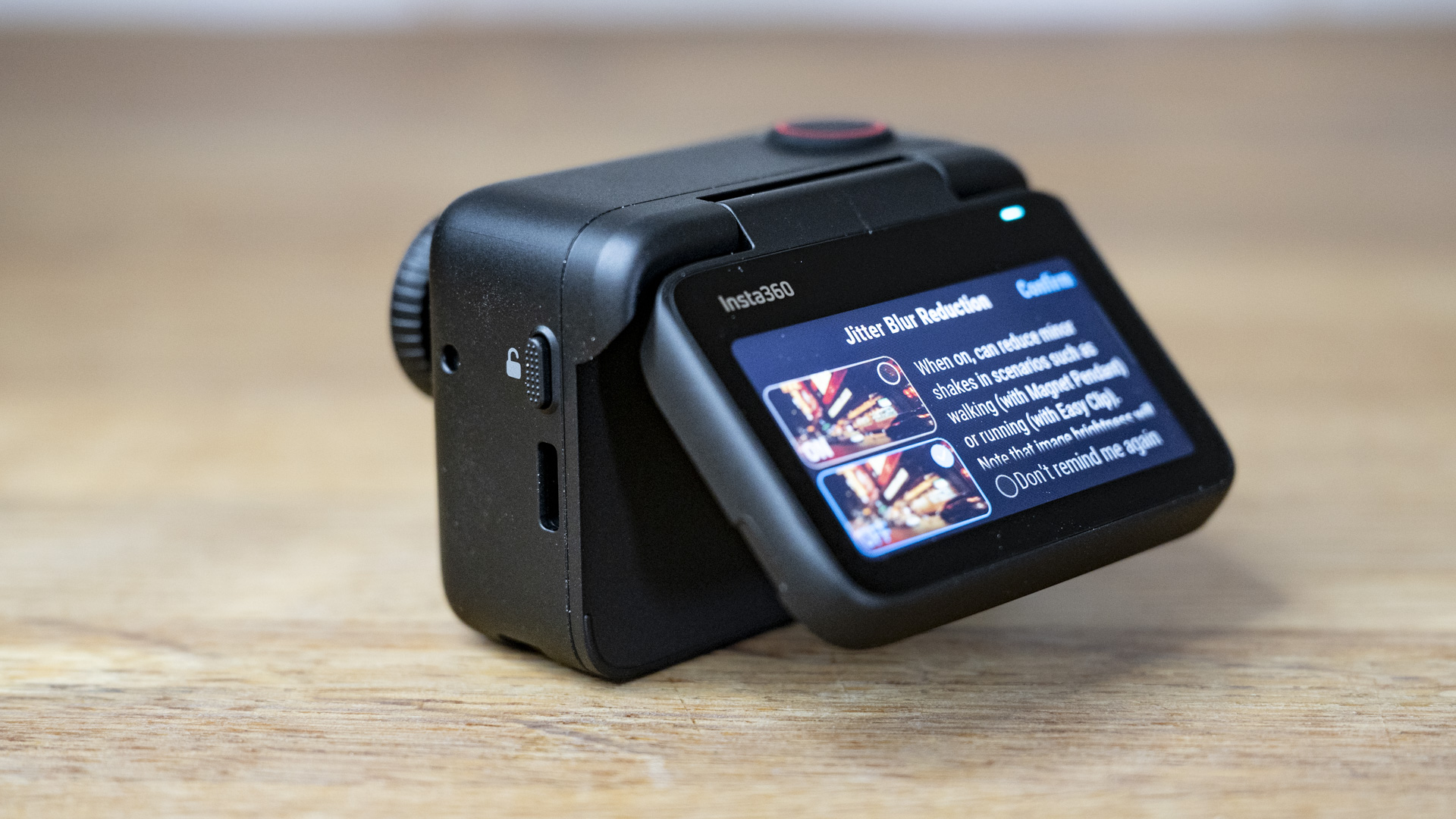
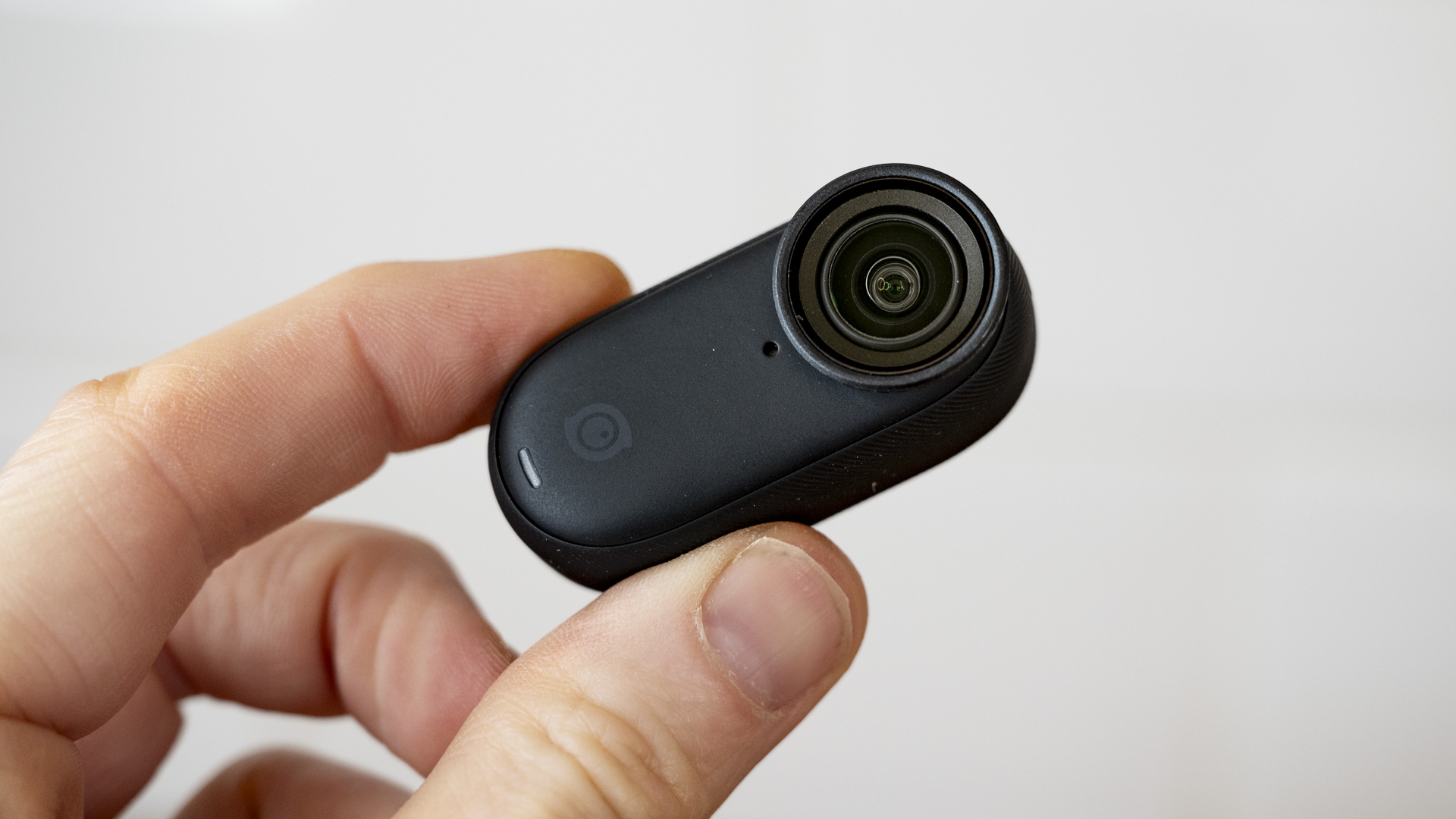
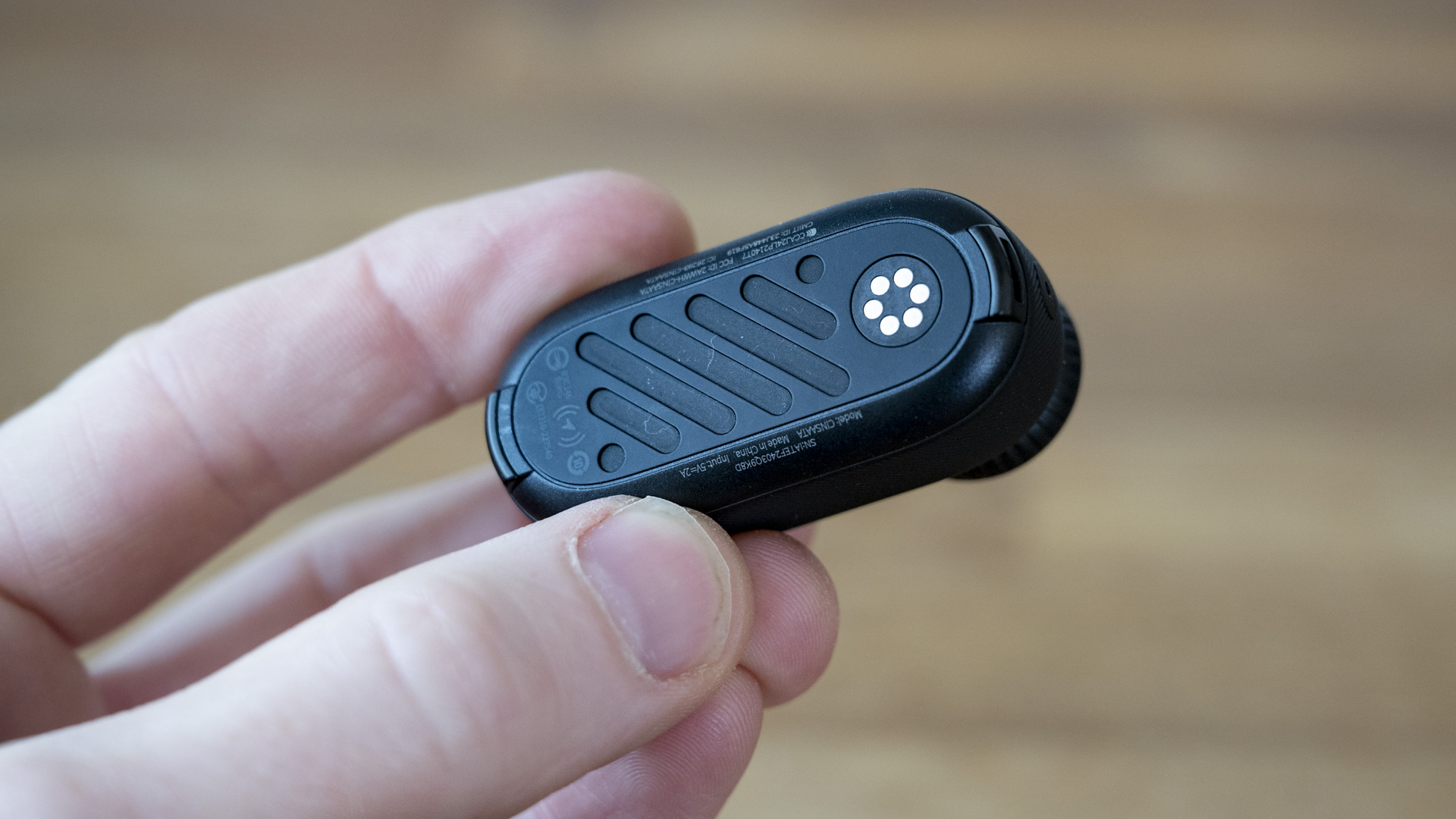
Specifications
Reasons to buy
Reasons to avoid
Insta360 Go 3S sample video
✅ You want the smallest action camera: Lightweight and miniature, the Go 3S is as tiny as 4K cameras get, unlocking unique angles.
✅ You want a range of shooting options: Use the clever FreeFrame mode and you can choose a vertical or horizontal aspect later.
❌ You want a completely rugged system: The Action Pod upgrades the shooting experience but it doesn’t have the same waterproofing.
❌ You want all-day battery life: Due to its size, the Go 3S has a modest battery life that can’t compete with rival cameras.
We praised the Insta360 Go 3 for its miniature design, foolproof interface and useful magnetic mounting abilities. Its successor improves on that proposition with a sharper 4K resolution, which makes the FreeFrame mode more versatile: based on our review, you can stick the Go 3S in places other cameras can’t go, then choose your preferred video orientation after the fact. If you want an easy way to capture unique angles or creative POV footage, the Go 3S will serve you well.
Its tiny size does come at the expense of battery life and overall video quality, especially in low-light conditions. Inserting the Go 3S into the Action Pod attachment does extend longevity, as well as enhancing the shooting experience with a responsive flip-up touchscreen, but it’s worth noting that the Action Pod doesn’t benefit from the same waterproof credentials. All the same, if versatility matters more to you than overall resolution, we think there’s no action camera quite like the Insta360 Go 3S.
Read our in-depth Insta360 Go 3S review
The best tough action camera
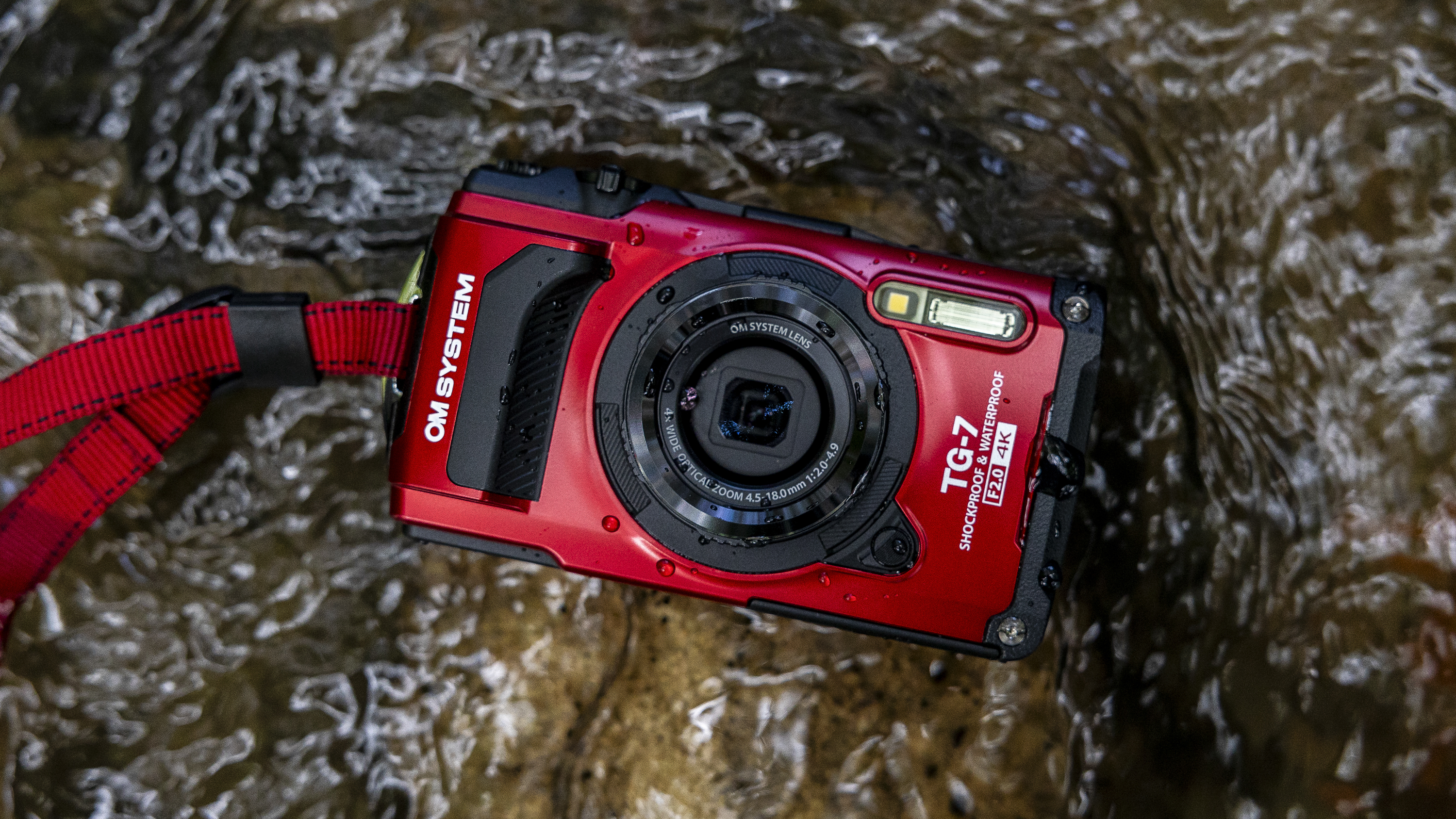


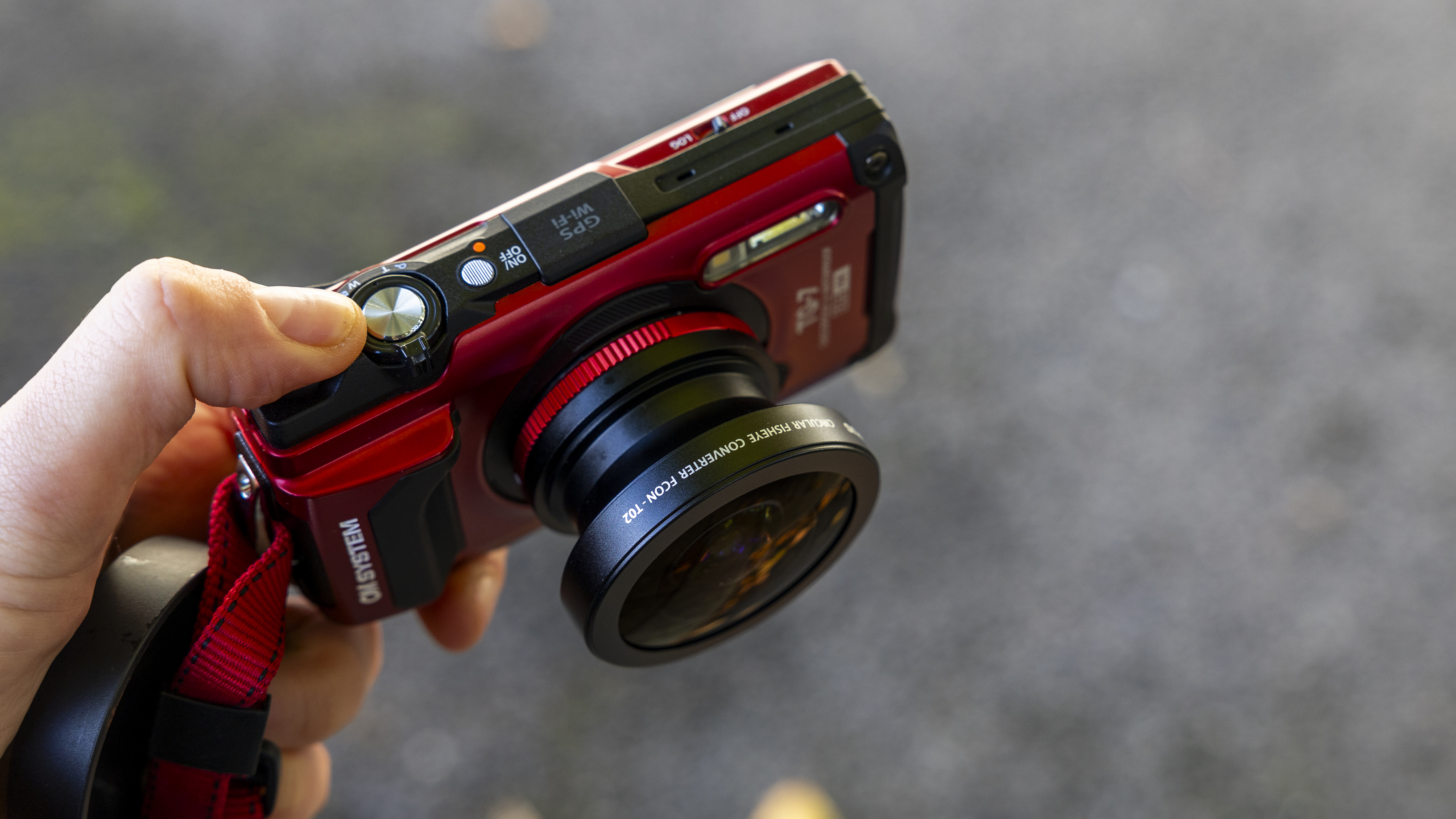
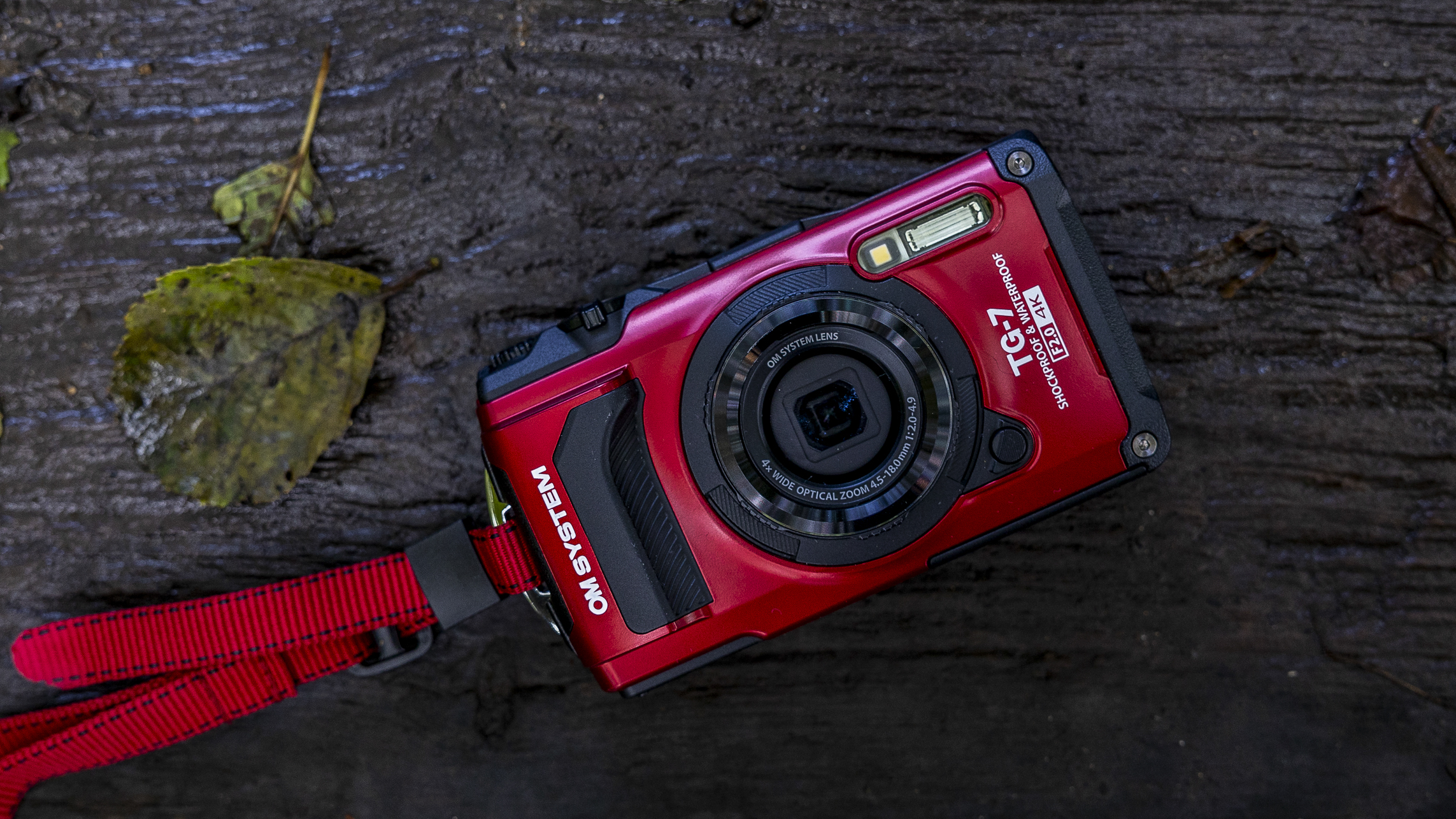
Specifications
Reasons to buy
Reasons to avoid
OM System Tough TG-7 sample images

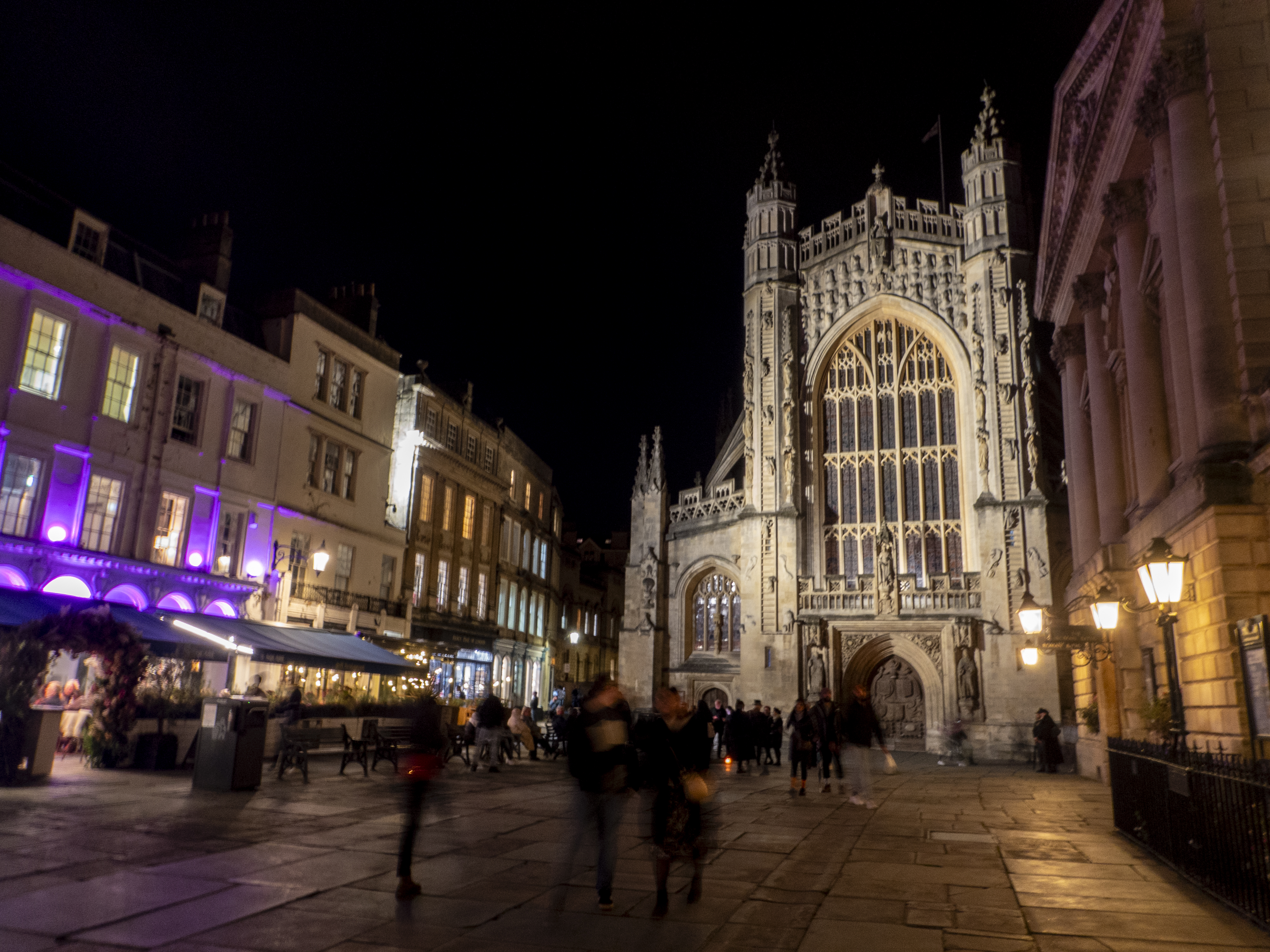

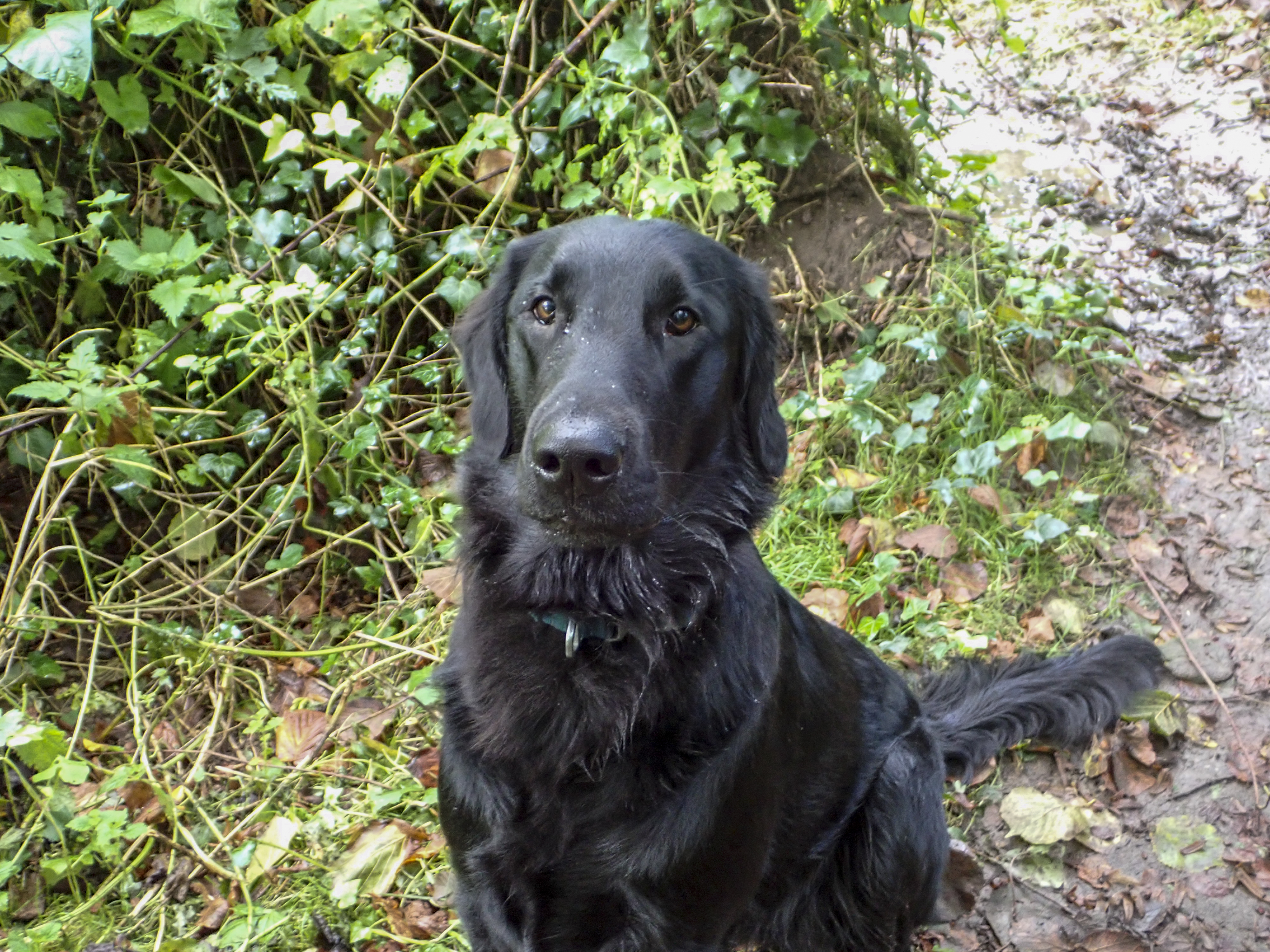

✅ You want a rock-solid family camera: Easy to use and as rugged as the come, the TG-7 is the perfect point-and-shoot for family adventures.
✅ You shoot images in all conditions: Designed mainly for stills, the TG-7 offers a surprising range of photography features and modes.
❌ You want the best quality: Even with its range of photo modes, the sensor size and resolution mean many smartphones shoot sharper.
❌ You want a touchscreen interface: The 3-inch LCD is usable enough, but it’s not touch-sensitive, which may put discourage some users.
A rugged point-and-shoot that’s easy to use and packed with a versatile set of photography features, we think the OM System Tough TG-7 is a top choice if you want a compact you can rely on in all conditions. It doesn’t represent a huge upgrade over the Tough TG-6, but it’s still the one we’d pick. Its durability credentials aren’t in any doubt, with protection against dust, drops, crushing, freezing and submersion. In testing, we also appreciated its tactile controls and accessible handling, even though its screen isn’t touch-sensitive.
We did find its 4K/30p video dated in our review, while image quality from its 12MP sensor can be bettered by most modern smartphones. That’s true, even with a fast f/2 aperture at the wide end of its 25-100mm zoom range. On the other hand, we were pleasantly surprised by its range of shooting modes, which includes macro focusing and white balance presets based on water depth. While this isn’t a camera to buy for the best quality images, it will see you through just about any type of action.
Read our in-depth Olympus Tough TG-7 review
The best value action camera
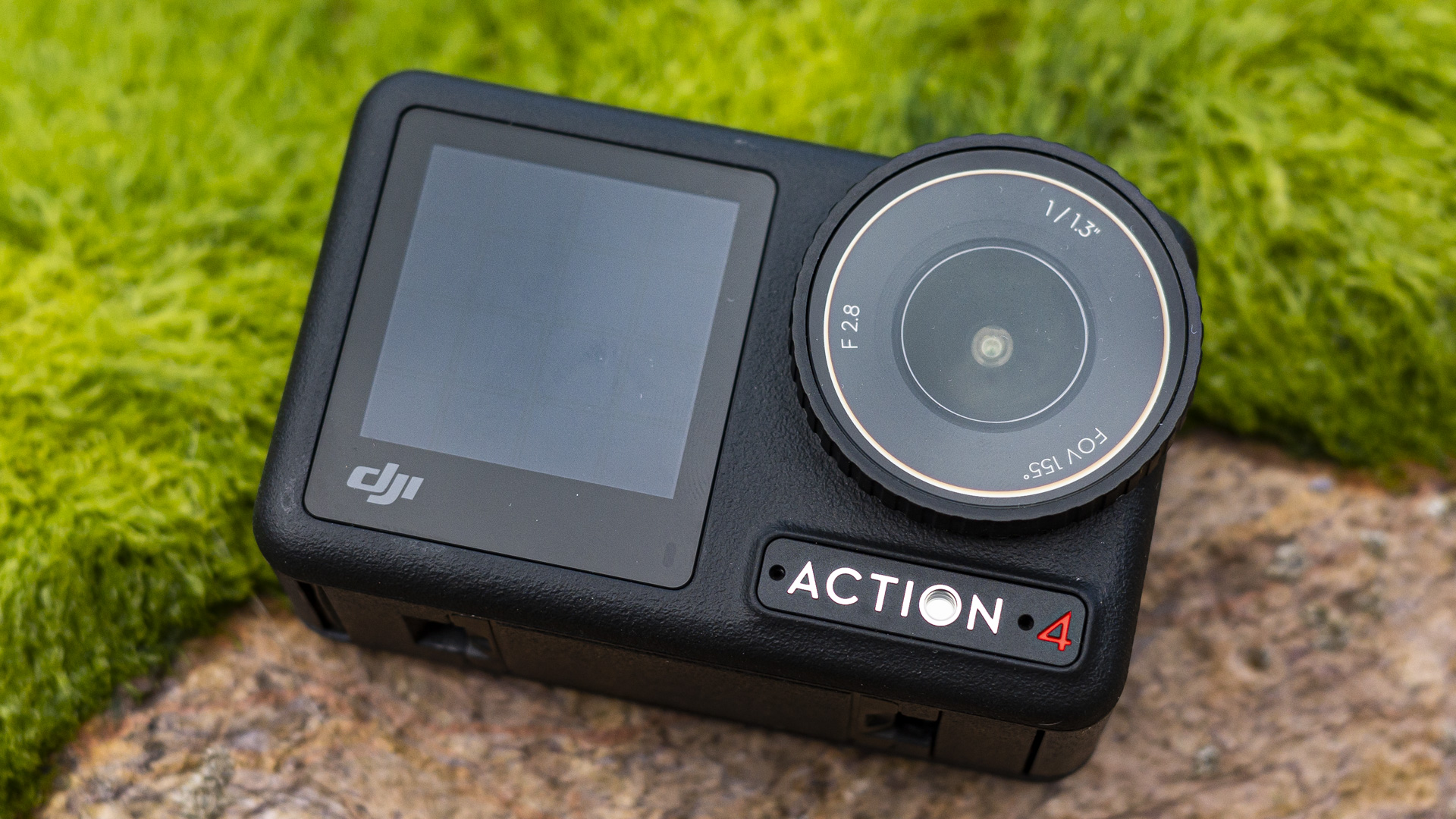
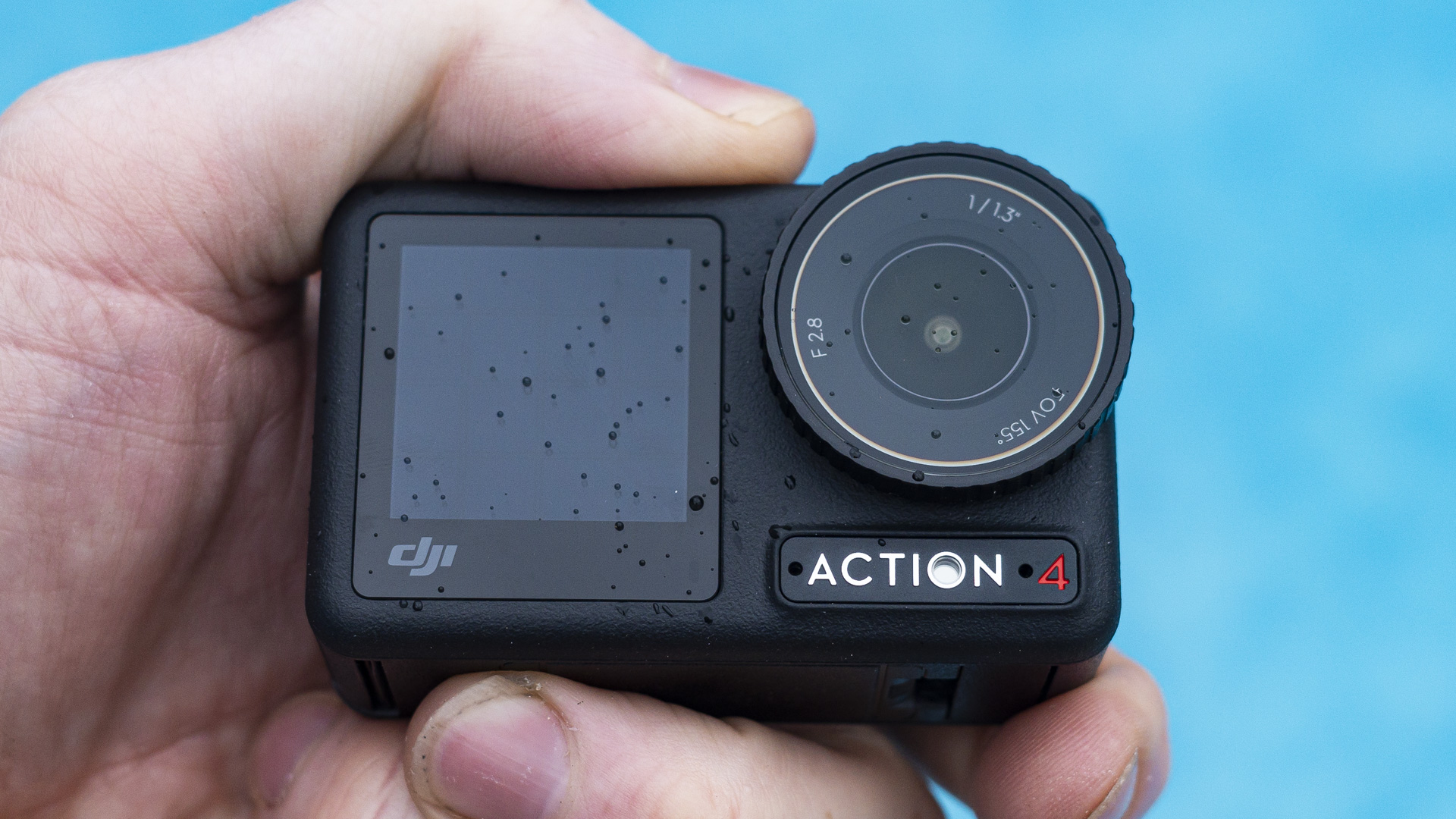
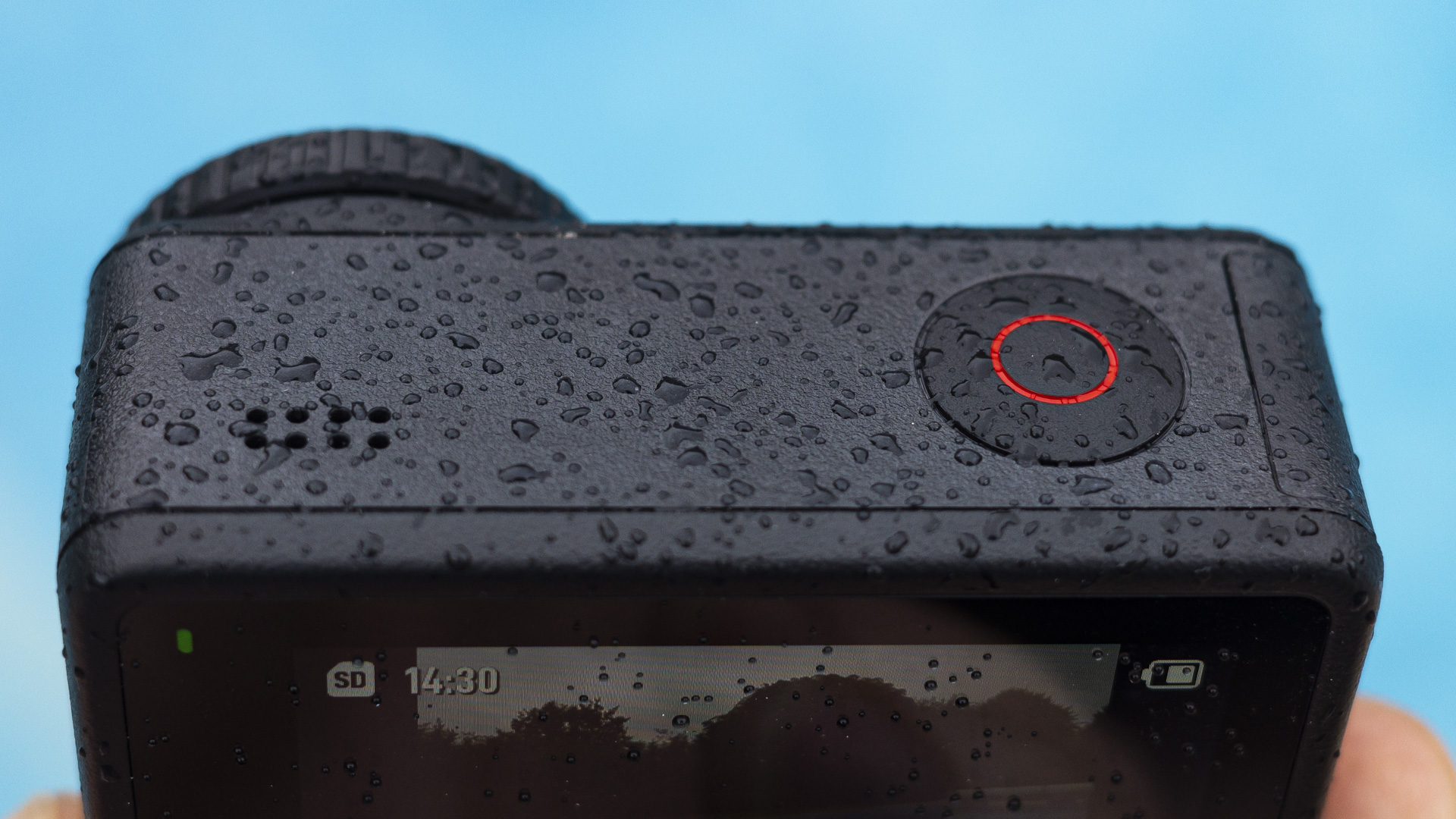
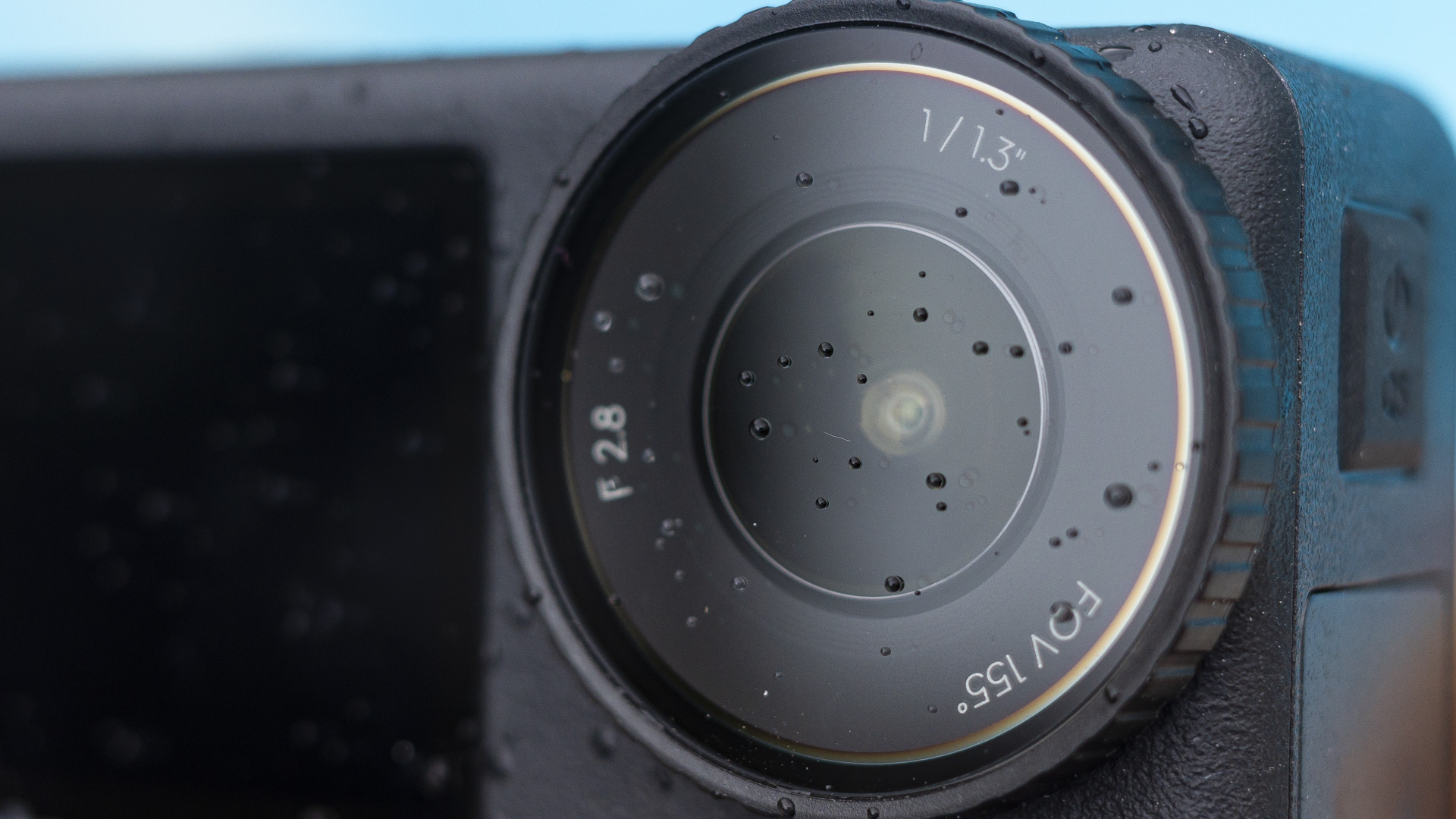
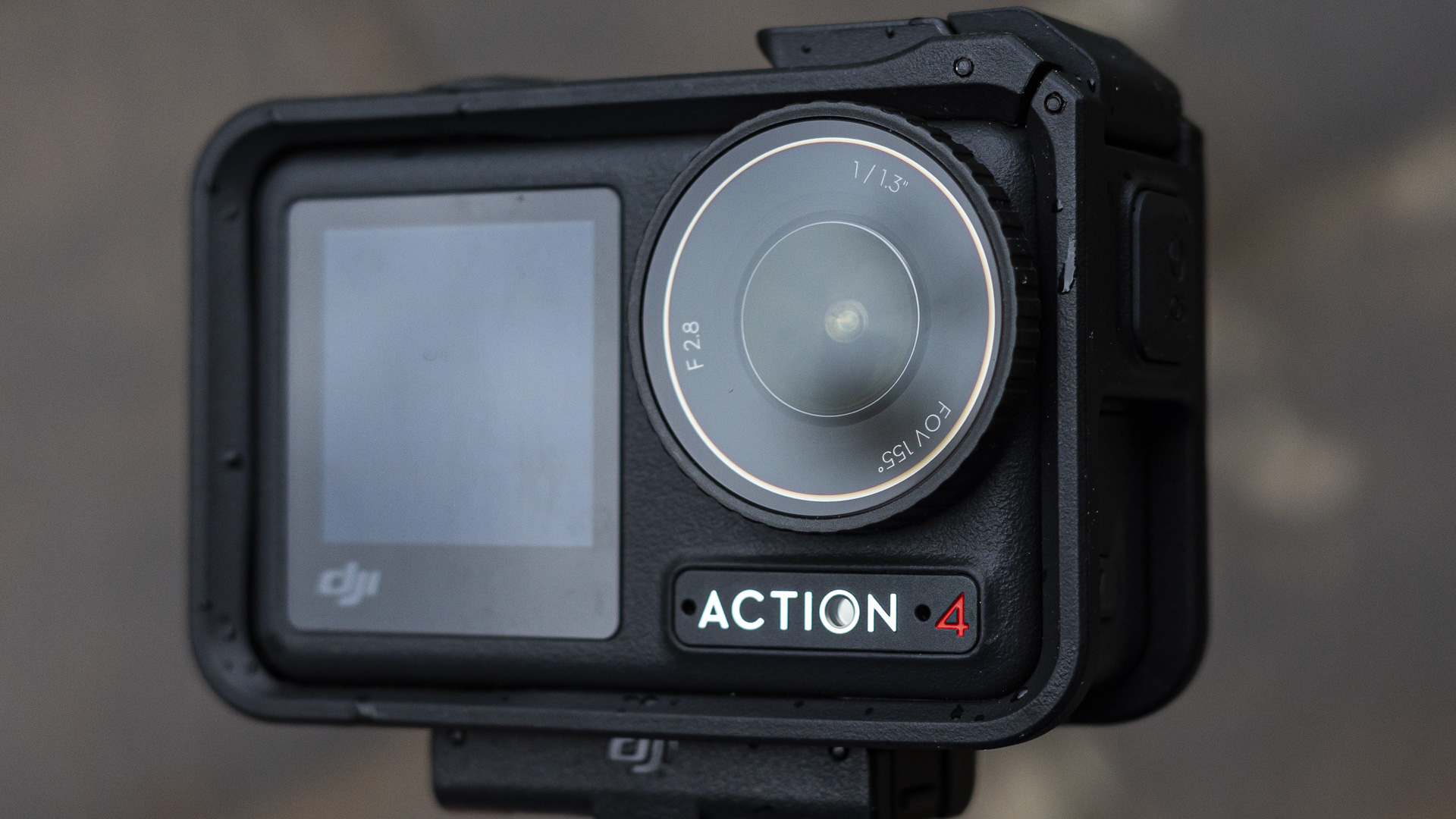
Specifications
Reasons to buy
Reasons to avoid
DJI Osmo Action 4 sample video
✅ You want a capable action cam for less: I called the Osmo Action 4 a polished GoPro rival and that remains true today, now regularly available for 35% less or better than its launch price.
✅ You shoot slow-mo: 4K 120fps and 1080p 240fps recording gives the Osmo Action 4 super slow-mo credentials.
❌ You like vlogging and closeups: With a large 1/1.3-inch sensor and 155-degree lens, the Action 4 has a 0.4m minimum focus distance – meaning any objects closer than that won't be sharp.
❌ You shoot a lot of action photos: Stills are limited to 10MP JPEGs. Compare that to GoPro and Insta360 rivals who shoot at higher resolution for more detailed shots.
If you want the very best value, I usually suggest looking at a previous generation model – the three best former flagships are the GoPro Hero 12 Black, Insta360 Ace Pro and DJI Osmo Action 4. And of those three, certainly at the time of writing, it's the Osmo Action 4 that is the best deal.
Now replaced by the Osmo Action 5 Pro – my top pick for serious creatives – I raved about the Osmo Action 4 at the time of testing, saying it is a superb option for family vacations. That's largely thanks to its rugged build, versatile mount options and accessories, rival-beating 18m waterproofing, and crisp 4K video even in low light. It has a large 1/1.3-inch sensor, excellent stabilization and decent external mic compatibility.
Battery life could be better, while stills are limited to 10MP – that's much lower than rivals. However, bang for buck, I can't think of a better action cam.
Read our in-depth DJI Osmo Action 4 review
Also consider
We've reviewed a whole range of action cameras, which means there are other options which almost made it into this list. Here are a few honorable mentions to consider.
Best value GoPro – GoPro Hero 12 Black: No longer top of the pile, GoPro’s former flagship can now be picked up at a discount, yet still offers a huge feature set, including incredible stabilization and 10-bit log capture. If you don’t need the lens mods of the Hero 13 Black, the Hero 12 Black shoots just as sharp. Want a beginner-friendly alternative? The Hero (2024) offers a pared back experience, even if its end quality can't match the flagship series.
Best alternative modular – Insta360 Go Ultra: the Ultra upgrades the Go 3S modular action camera in the list above, with better video recording capabilities and more. However, it's slightly larger than the Go 3S which somewhat limits its modular appeal, and that's why I've kept the Go 3S at my top pick for such a use case.
Best 360-degree alternative – GoPro Max 2: Six years after the original Max, GoPro finally delivered a powerful 8K successor. In the right conditions, there's no better 360 camera, and tool-free swappable lenses add to the appeal. For audiophiles shooting 360 video, I think the DJI Osmo 360 is the better pick.
Best quality alternative brand – Kandao QooCam 3: Its companion apps aren’t perfect, but this 360-degree action cam is still a solid alternative to mainstream contenders. It shoots footage at up to 5.7K and stands out in low-light conditions, courtesy of 1/1.55-inch sensors and wide f/1.6 apertures. It’s easy to use, too.
Upcoming action cameras
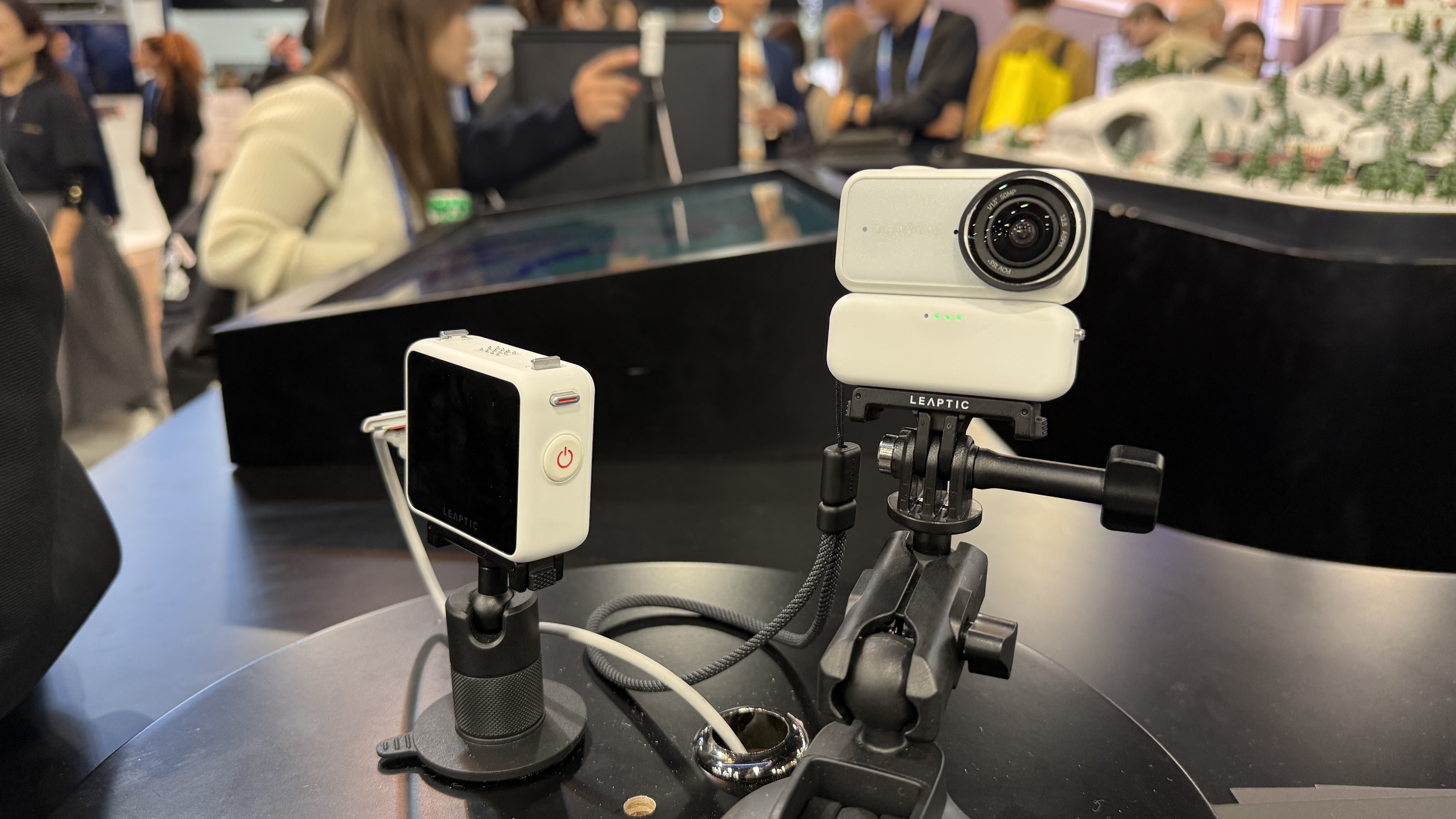
With GoPro, Insta360, DJI, Akaso, Kandao and more on the scene, the action camera category is an active one, with new models and iterative updates regularly hitting the market. I keep a close eye on launch cycles, announcements and online rumors, and stay on top of new releases, testing the latest action cameras as soon as they land and updating this guide accordingly.
There's one upcoming model that we already know about and it's from a completely new player – robovac maker Dreame. A surprising debut at CES 2026, the Leaptic Cube is an 8K modular action camera that could dethrone Insta360's Go3S as the best tiny action cam.
DJI was most recent on the scene with its Osmo Action 6, but that doesn't mean it won't be next with another model, such is the frequency of its product launches. I was expecting the GoPro Hero 14 Black back in September last year, but instead we got the Max 2 and entry-level Hero (2024). Yes, for the first time in 10 years, GoPro did not launch a new flagship model. It's not all bad news for GoPro fans, though, because in a consequent quarterly earnings call, GoPro's CEO promised a particularly busy 2026 with new products, in new categories too.
Based on the release dates of the Ace Pro and Ace Pro 2, we can expect an Insta360 Ace Pro 3 launch some time in 2026. Already an excellent all-rounder, we’d expect to see performance refinements from the Ace Pro 2, with fewer limitations on 8K recording and a solution to its overheating issues.
How to choose the best action camera for you
How to choose the best action camera
While many of the best action cameras have unique features which set them apart from the competition, there are certain core skills that every good action cam should have.
Rugged build
An action camera should be rugged enough to endure your adventures, plus waterproof down to at least a few meters. It should also be straightforward to use and operate, even in extreme conditions. Touchscreens can make an action cam easier to control, but if you plan to shoot while wearing gloves, it might make more sense to select a model with physical buttons.
Stabilization
You’ll probably use an action cam on the move, so image stabilization is an important feature. This should smooth out camera shake to produce more watchable footage. The quality of image stabilization can vary significantly, so it’s worth thinking about how smooth your video needs to be (or whether you can live with a few wobbles). A higher resolution sensor can help: digital image stabilization will often crop the frame to eliminate movement. Footage cropped from 4K will look better than video that’s been reduced down from 1080p.
Connectivity and app support
Many of the top action cameras also offer smartphone connectivity, which allows you to easily edit and share your latest videos quickly. Some models also support live-streaming straight to platforms like YouTube. This can be demanding on battery life, but will be useful if you plan on vlogging directly to social media.
Slow motion video and creative modes
Most action cameras can shoot slow-motion footage at upwards of 120fps, while some of the top models also offer more creative shooting modes, such as hyperlapses. Some in-camera effects can be replicated with editing software, but it’s worth considering a camera with creative presets if you’re looking to add variety to your videos with minimal effort.
Mounting
The majority of models ship with a range of mounting options. If you’re planning to use one during a more niche activity, be sure to check that there’s a suitable attachment available to fit your needs. A few action cams go further, offering a modular setup which allows you to augment your shooting with optional accessories, such as microphones, lights or even a 360-degree lens.
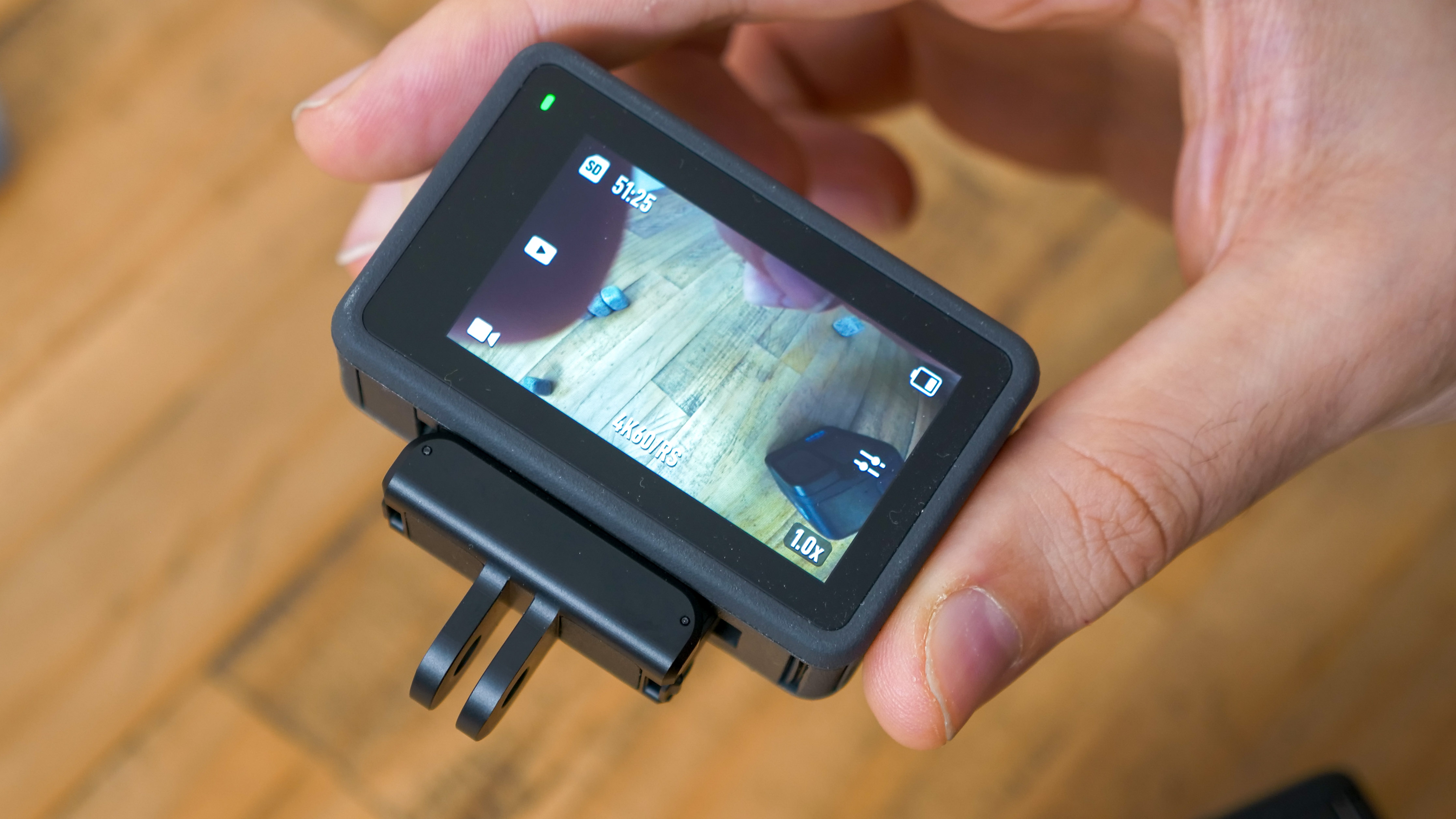
What is an action camera used for?
The best action cameras are compact, tough and easy to operate. Thanks to their rugged build, action cams can be used to shoot footage in the kind of scenarios where most standard cameras simply can’t survive. And because the top options offer outstanding image stabilization, action cams are ideal for recording smooth video while you’re on the move.
Many people use action cameras to capture footage of their adventurous pursuits, such as mountain biking, skydiving or snowboarding. The best action cams are also waterproof, so some outdoor enthusiasts employ them to shoot watersports or record underwater video while swimming or diving. Most action cams come with a range of mounts, which make it easy to attach them to your helmet, handlebars or even a strap which wraps around your chest. So you should always be able to find an attachment that suits.
Action cameras can also be fitted inside vehicles, either to record the road like a substitute dash cam, or to capture what the driver is doing. Several motorsport series fit in-car action cameras to record racing drivers.
Not everyone uses action cameras for extreme activities, though. Because the best models are easy to control, feature creative shooting modes and offer excellent connectivity options (including live-streaming support), a lot of vloggers use models like the GoPro Hero 10 Black to shoot videos for social media. Image stabilization means they’re great for walking and talking, while their compact size makes action cams good for on-the-go recording.
Some content creators deploy action cams as a second camera alongside their main mirrorless model, for shooting slow-motion b-roll or capturing additional angles to add variety to their videos.
Sign up for breaking news, reviews, opinion, top tech deals, and more.

Tim is the Cameras editor at TechRadar. He has enjoyed more than 15 years in the photo video industry with most of those in the world of tech journalism. During his time as Deputy Technical Editor with Amateur Photographer, as a freelancer and consequently editor at Tech Radar, Tim has developed a deeply technical knowledge and practical experience with cameras, educating others through news, reviews and features. He’s also worked in video production for Studio 44 with clients including Canon, and volunteers his spare time to consult a non-profit, diverse stories team based in Nairobi. Tim is curious, a keen creative, avid footballer and runner, and moderate flat white drinker who has lived in Kenya and believes we have much to enjoy and learn from each other.
- Mark WilsonSenior news editor
- Chris Rowlands